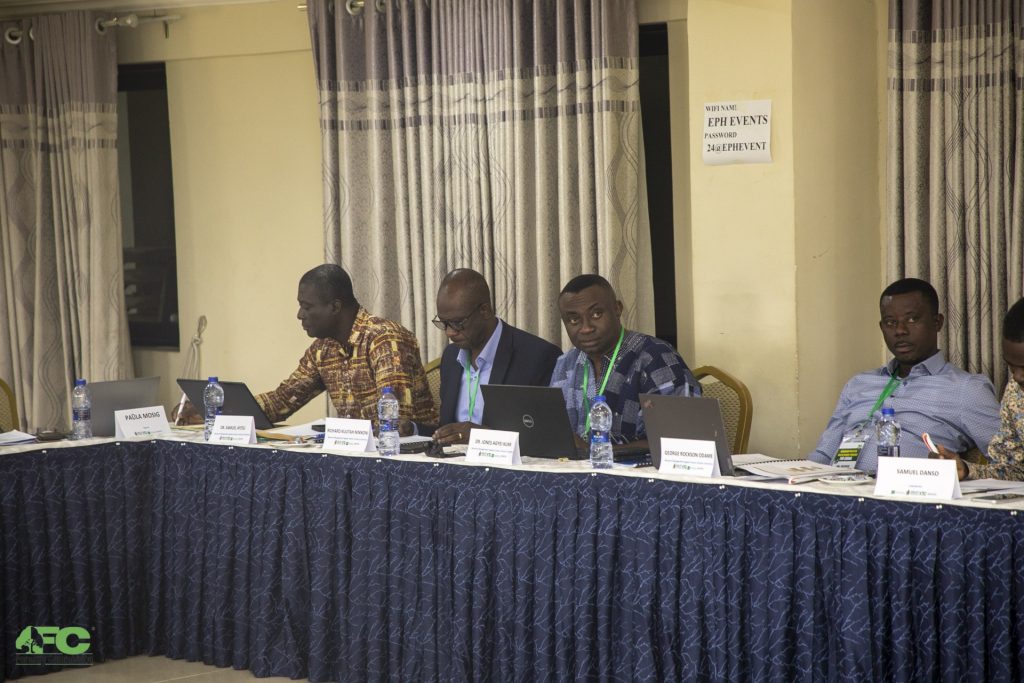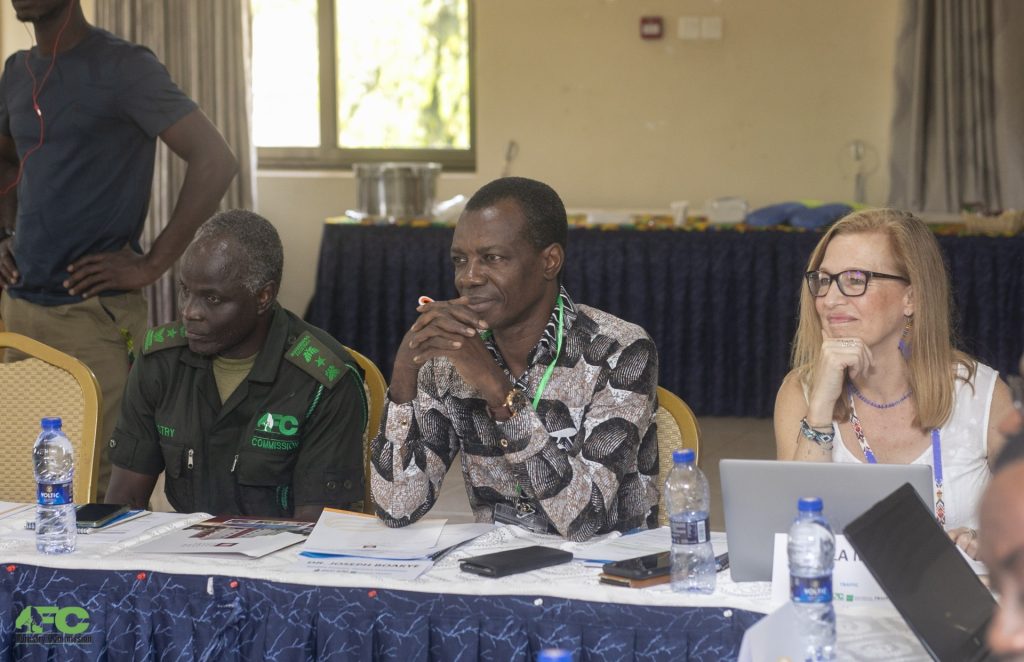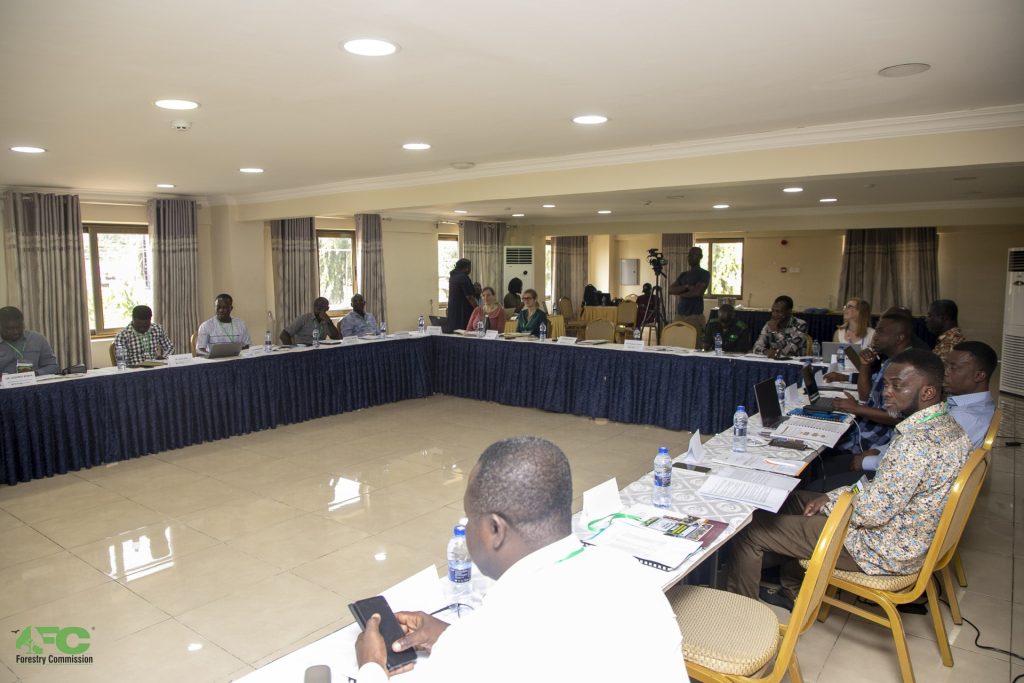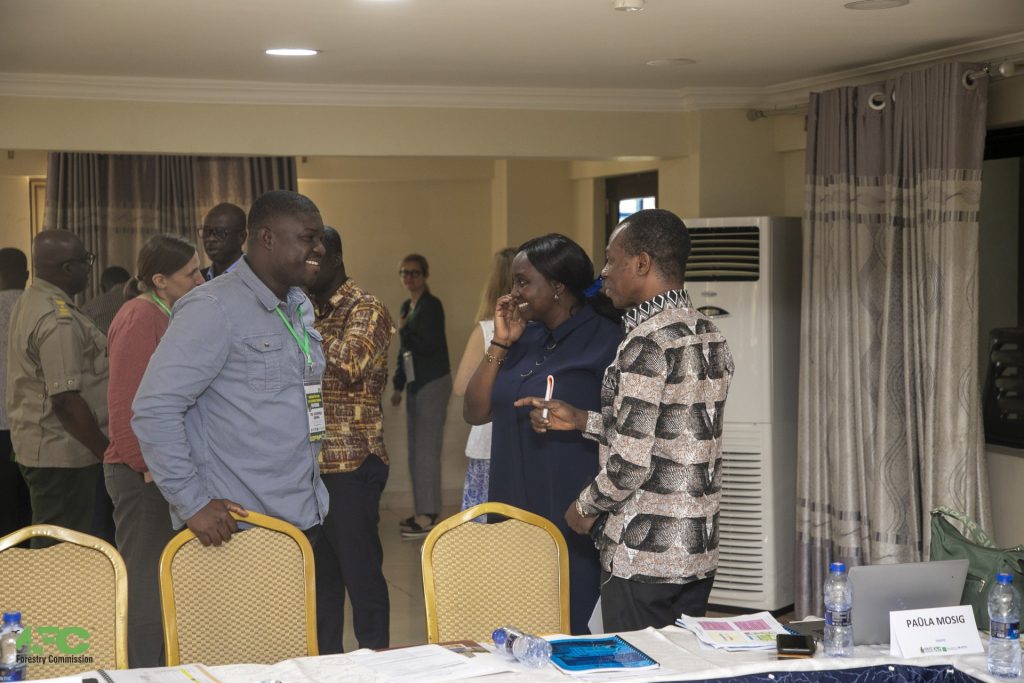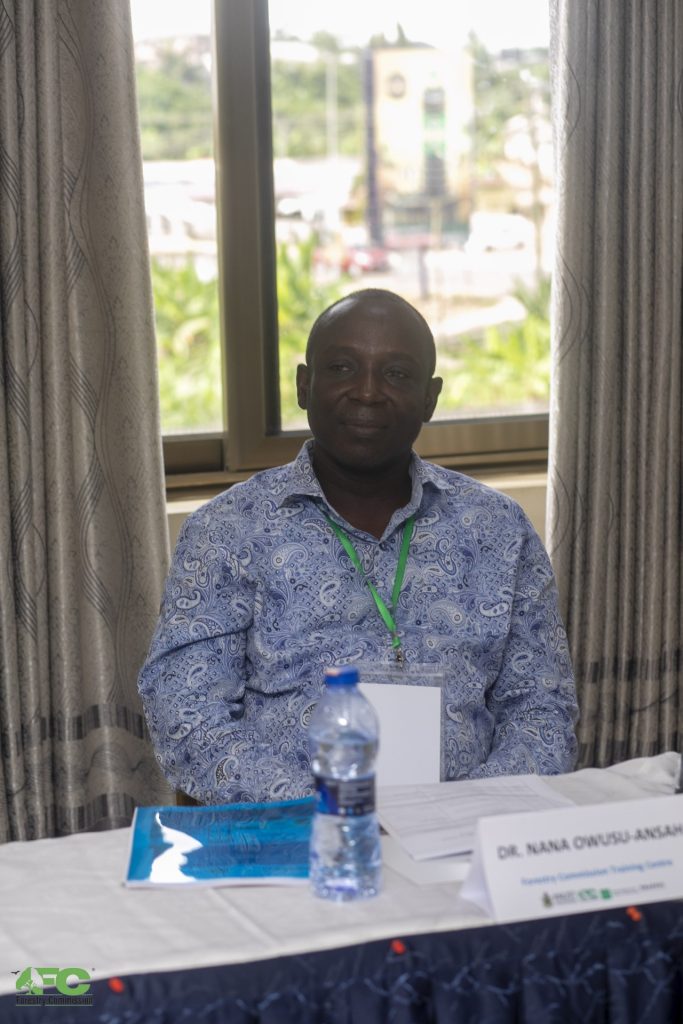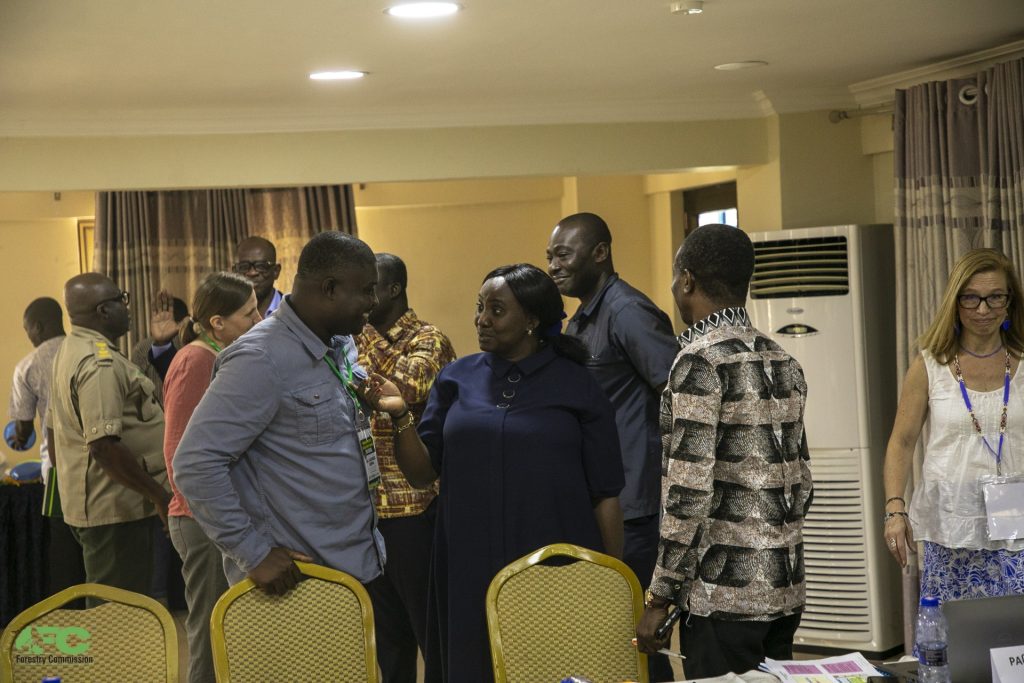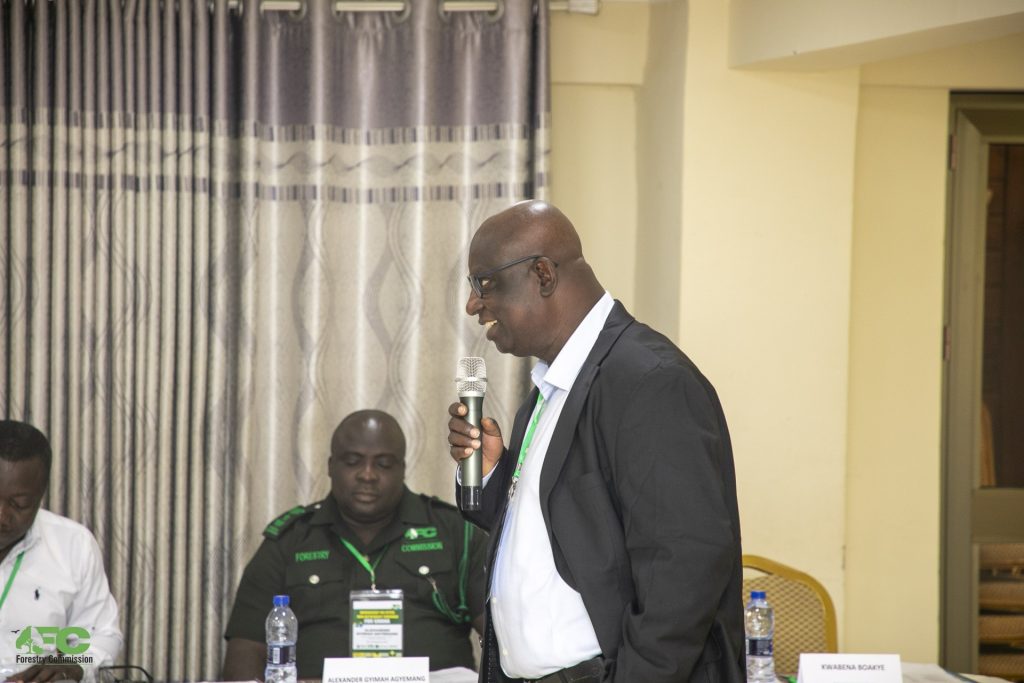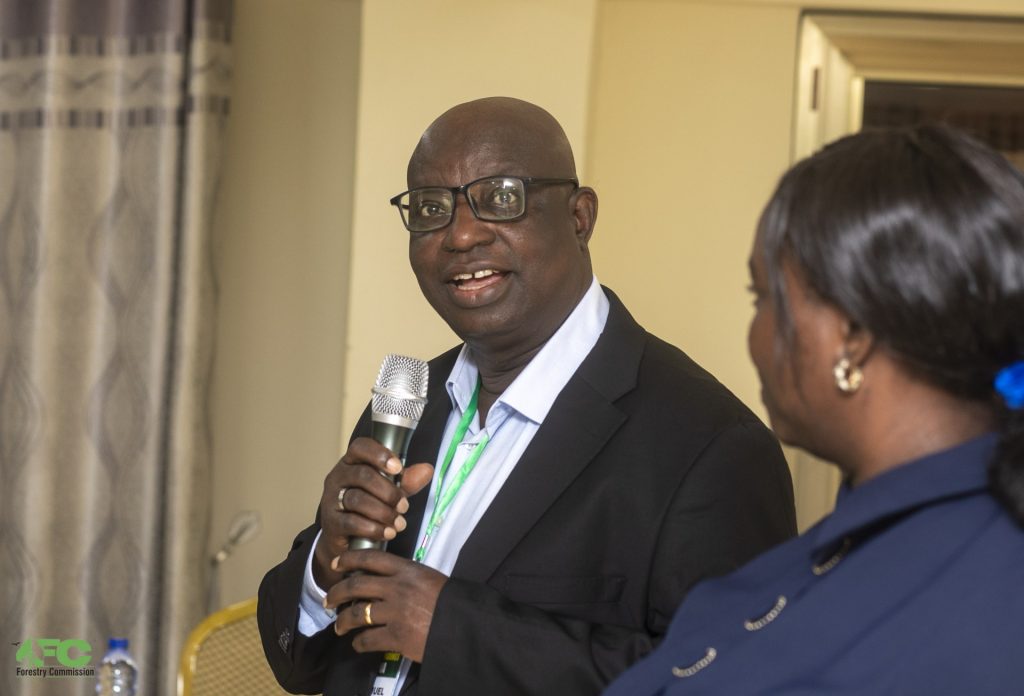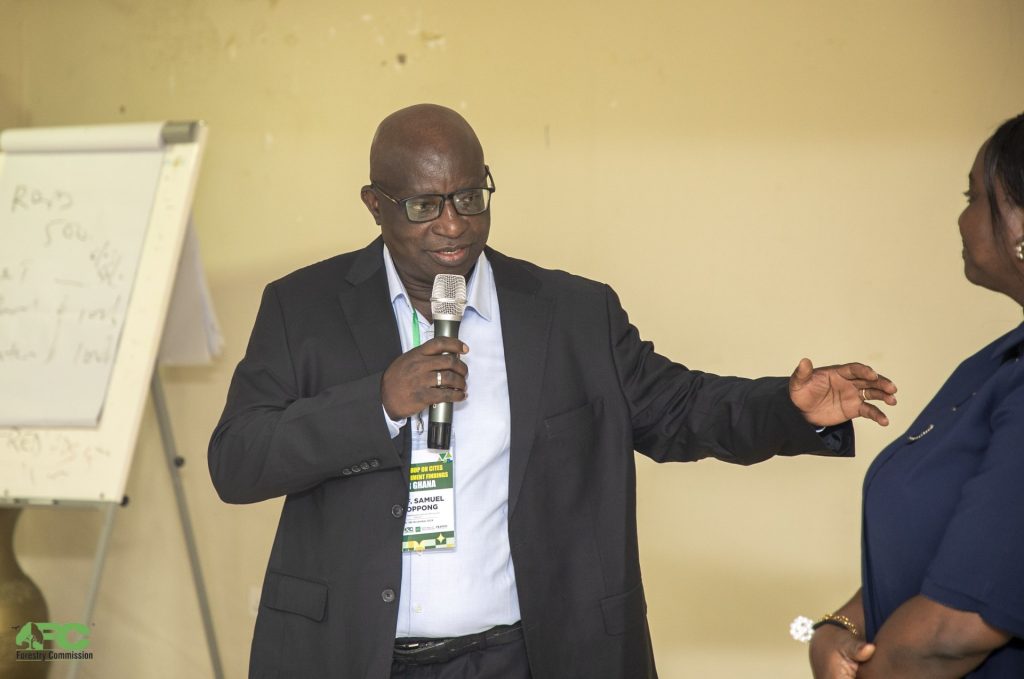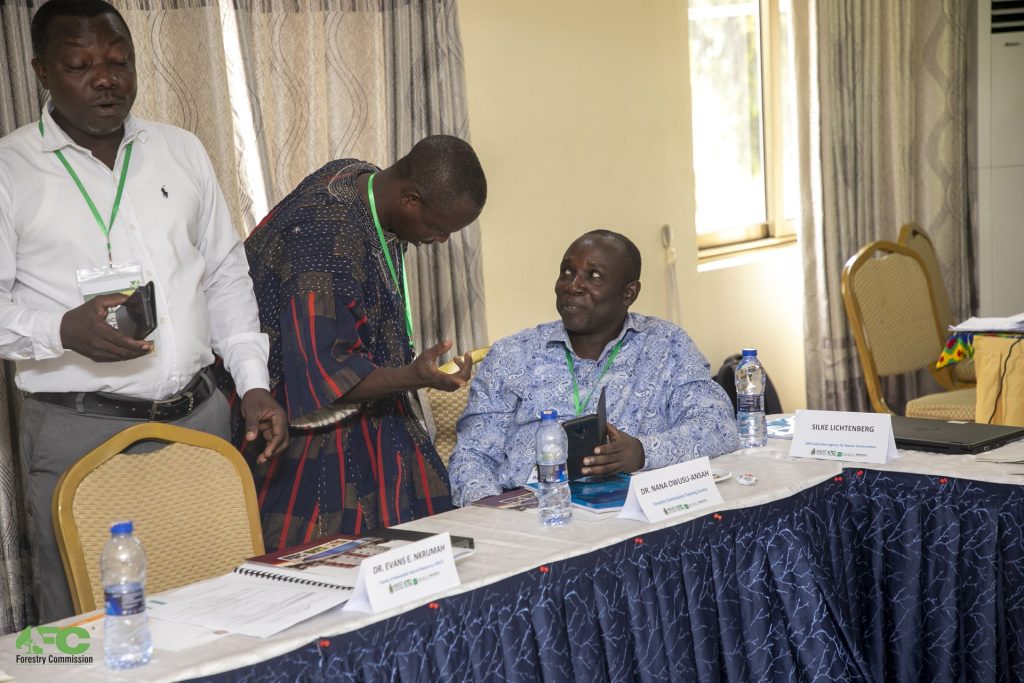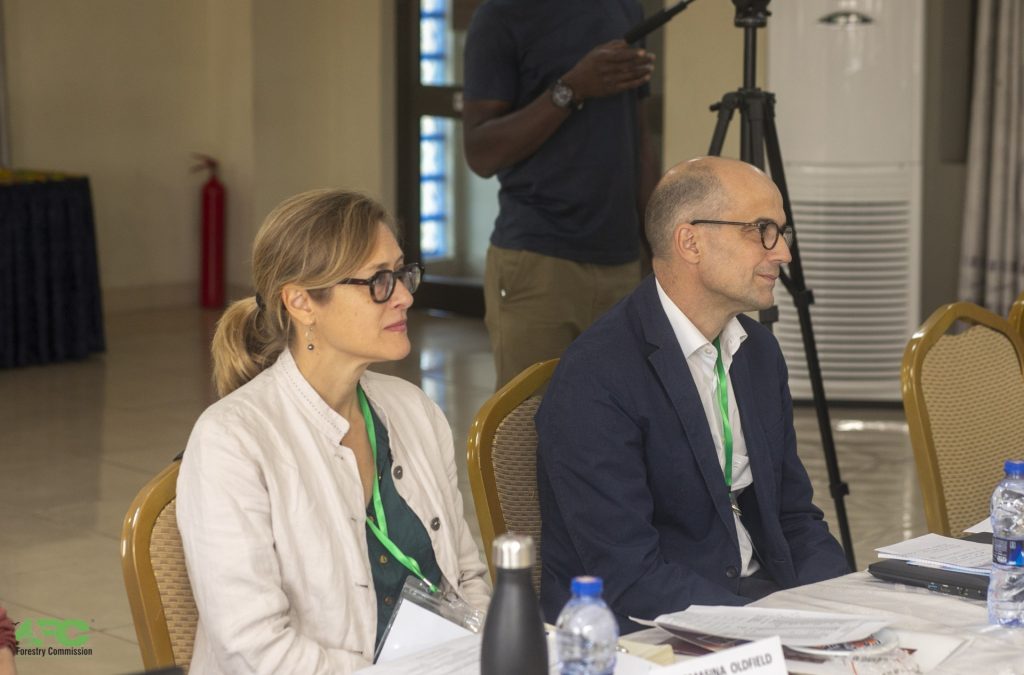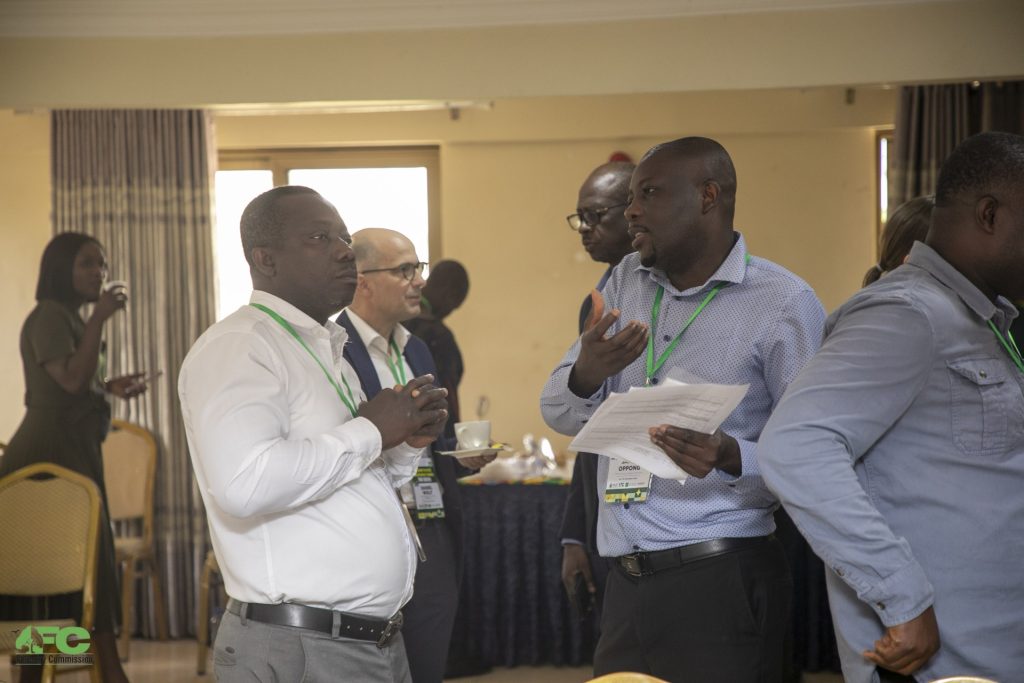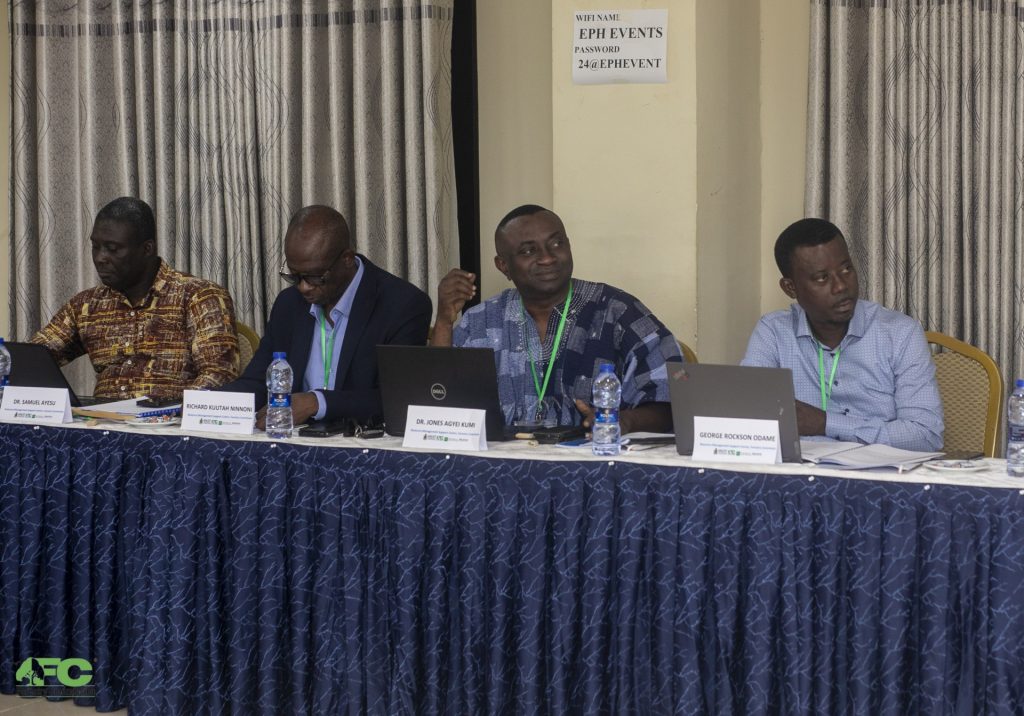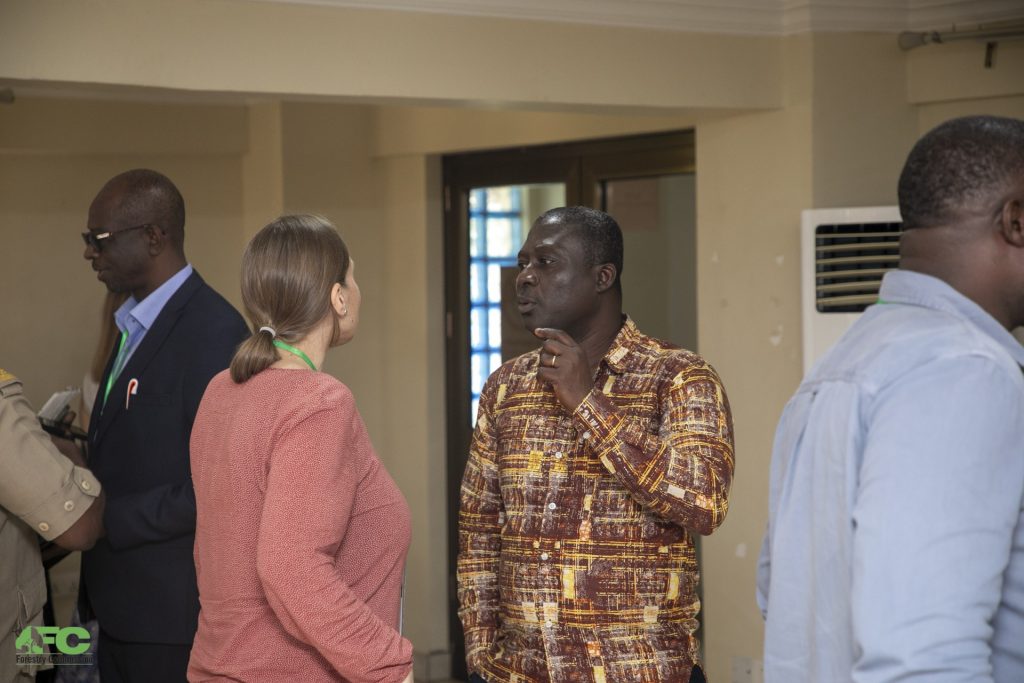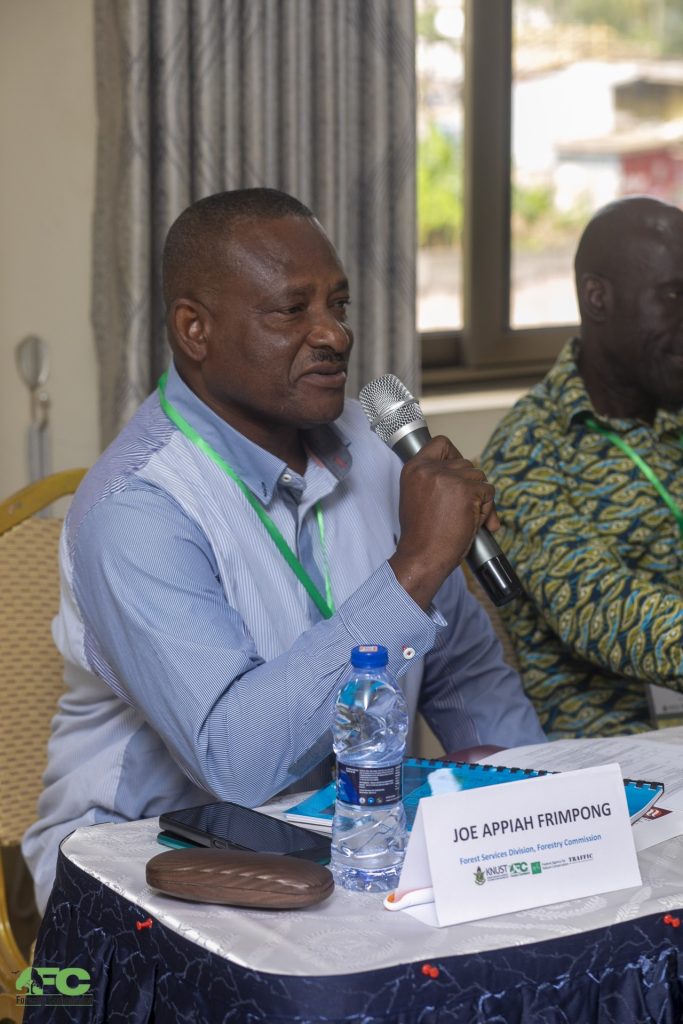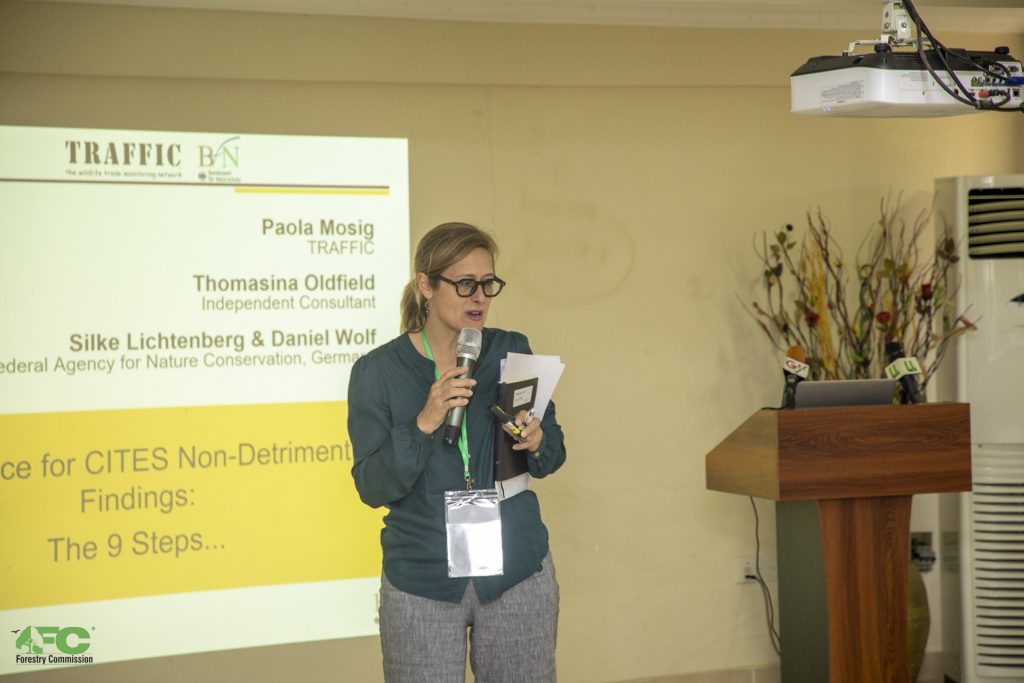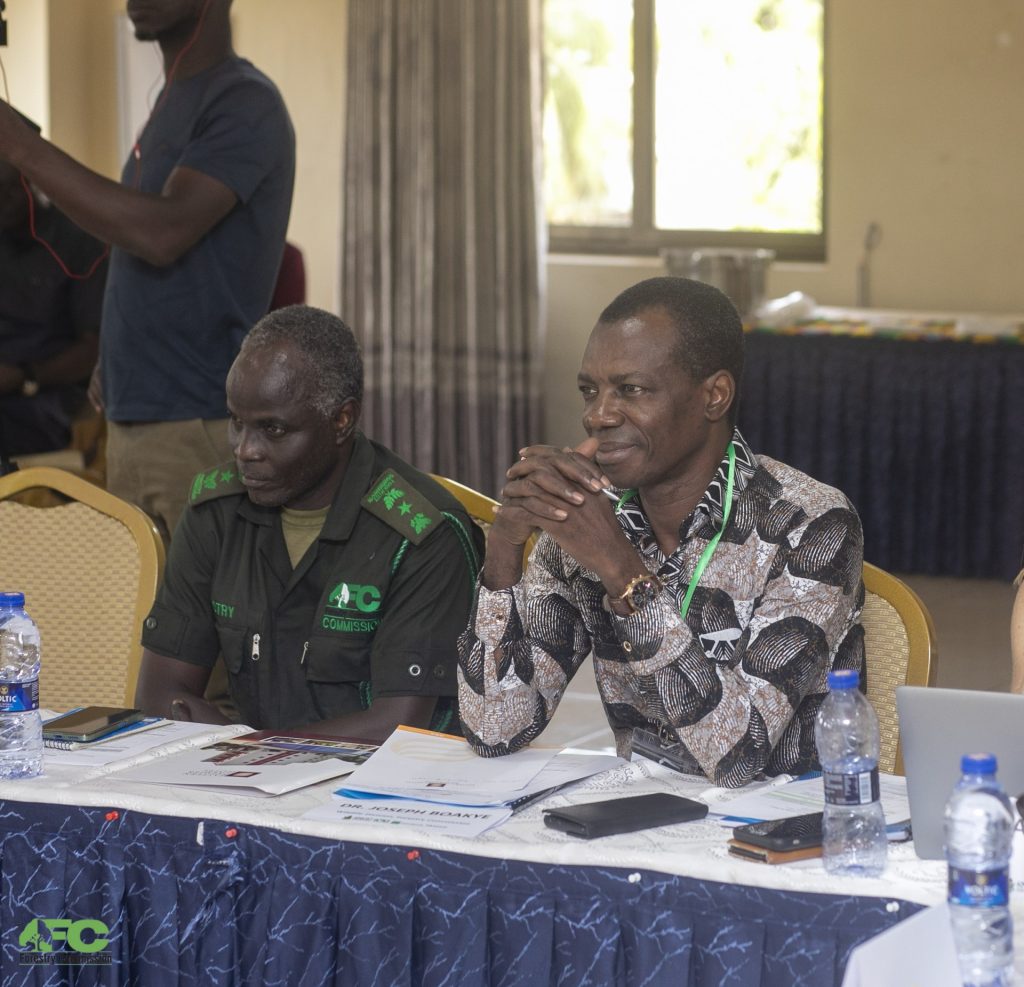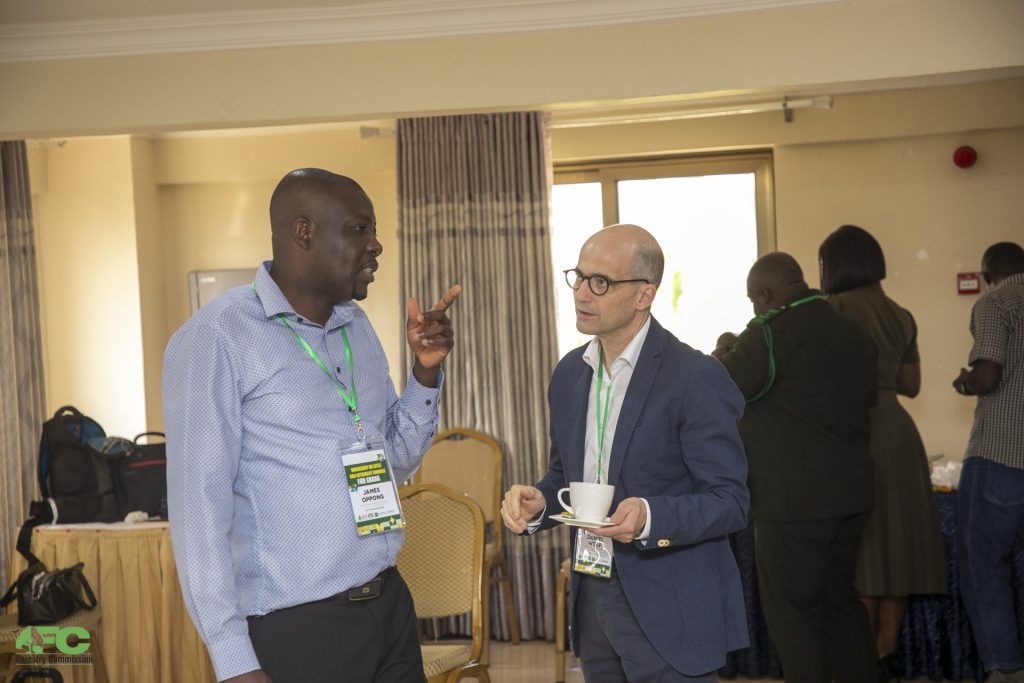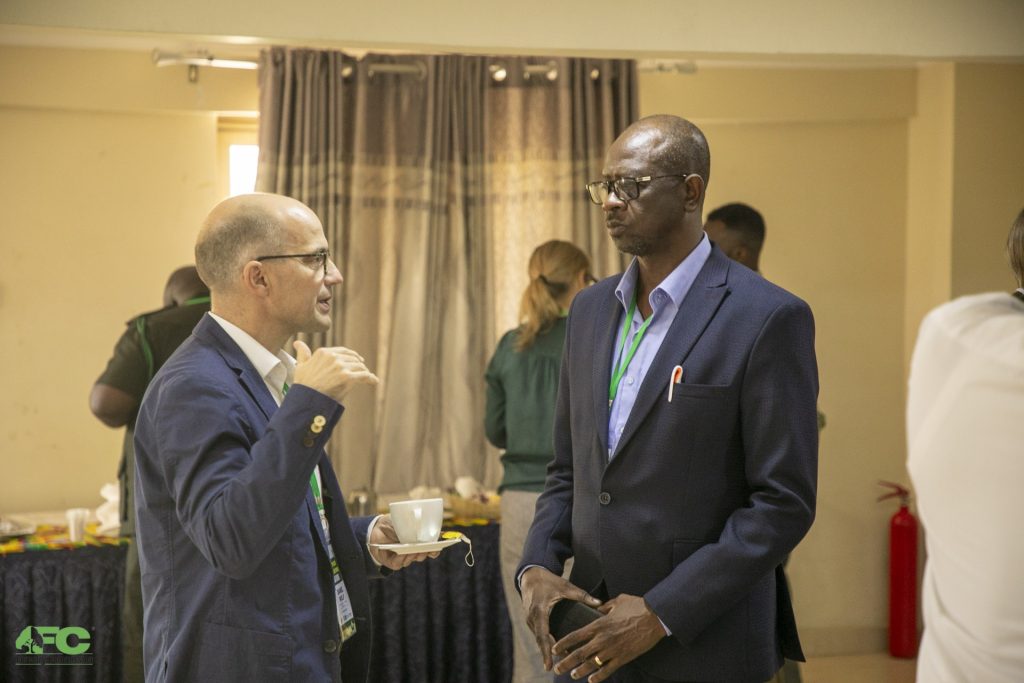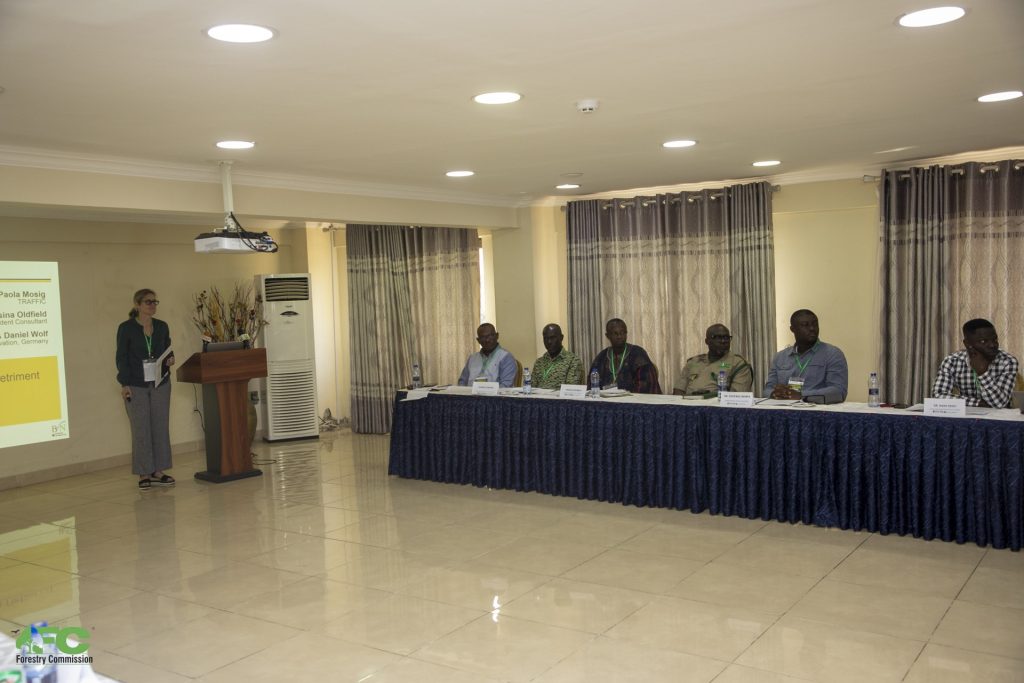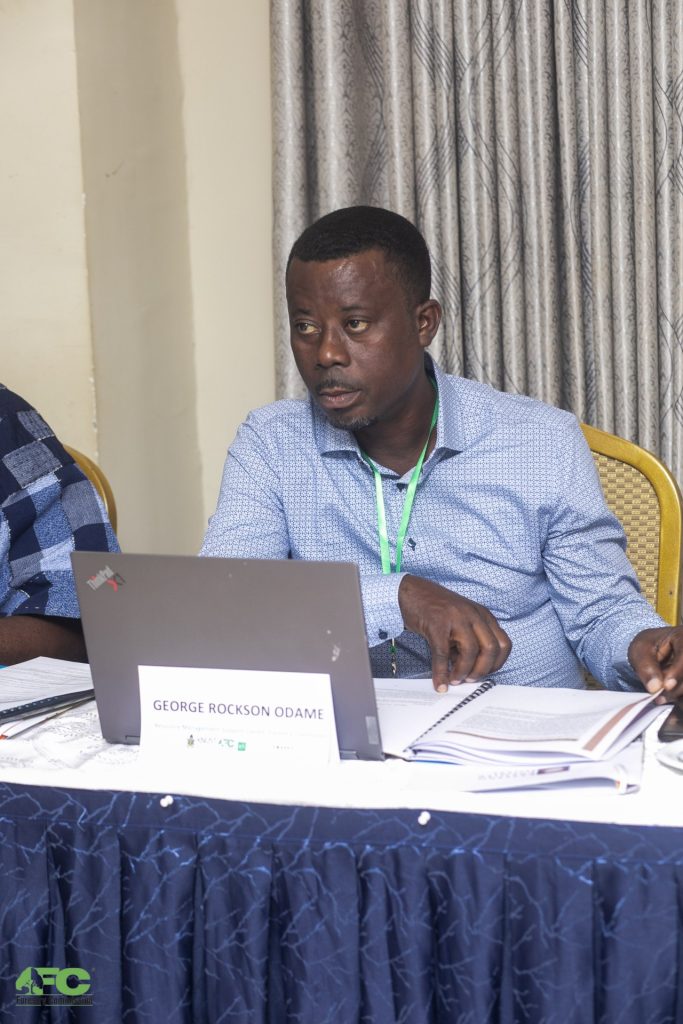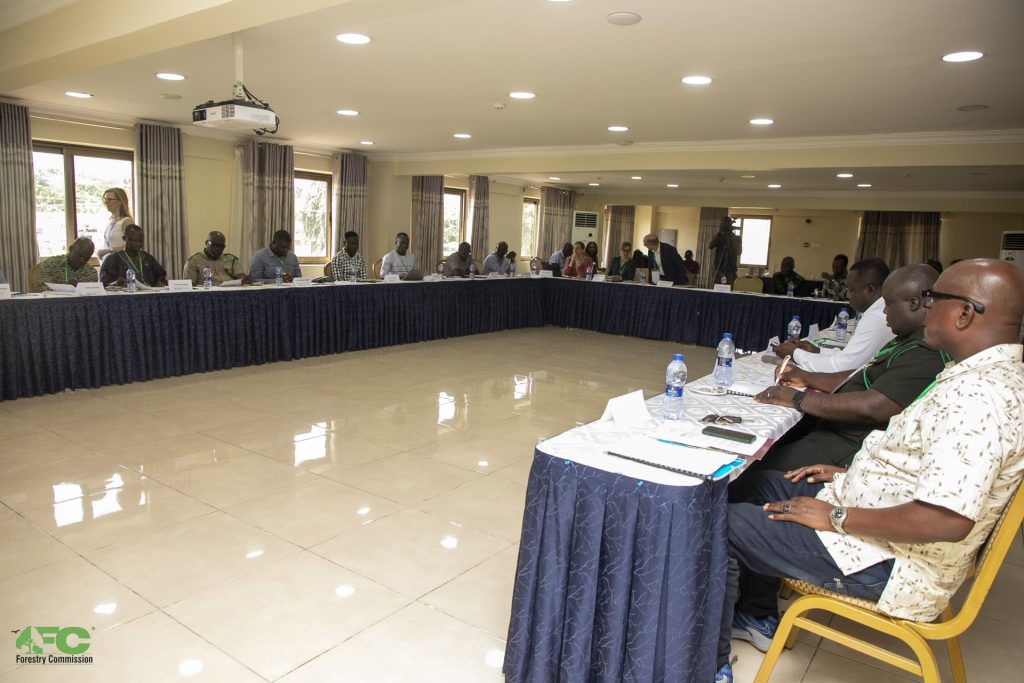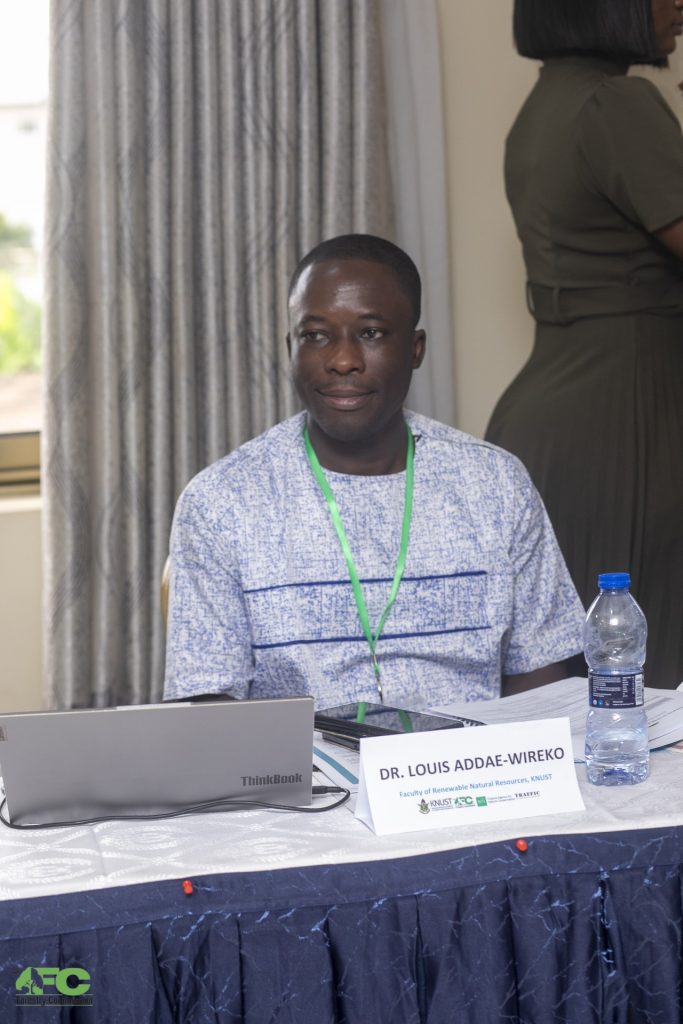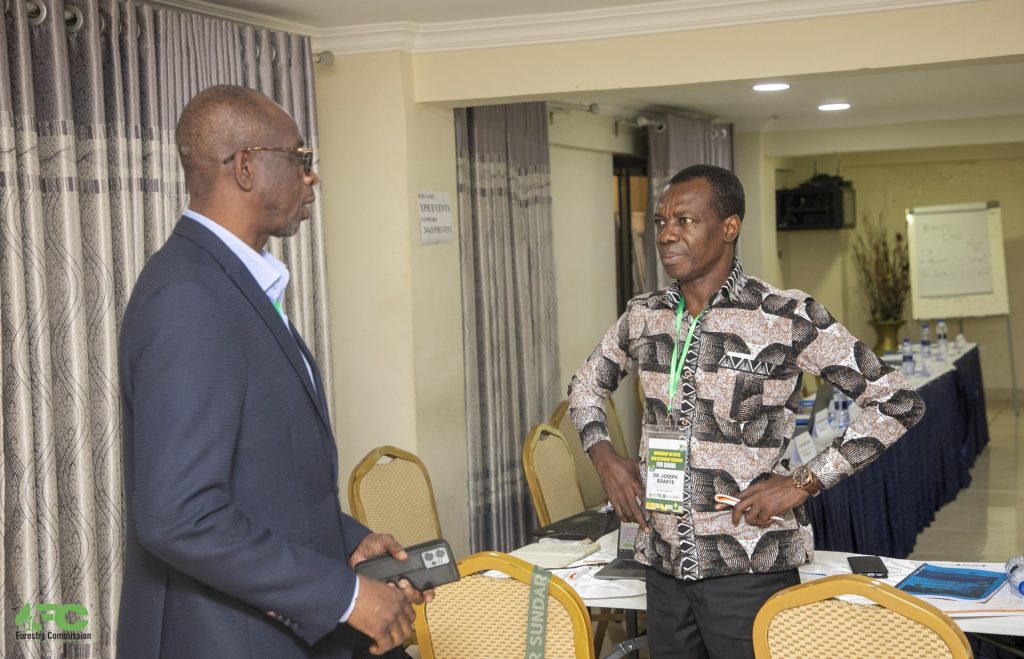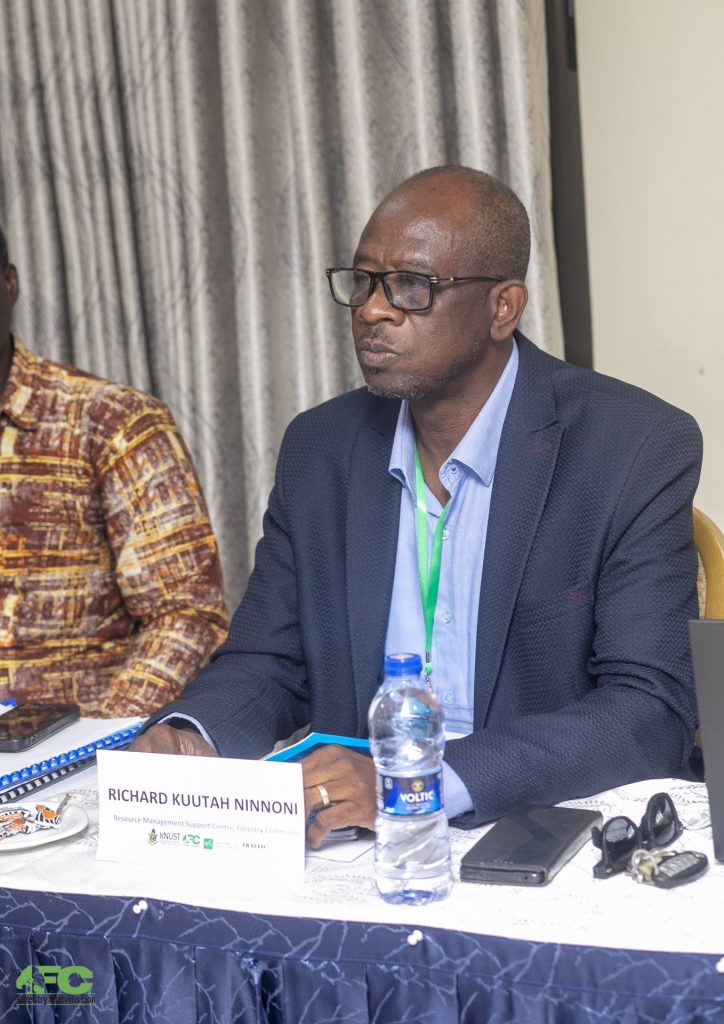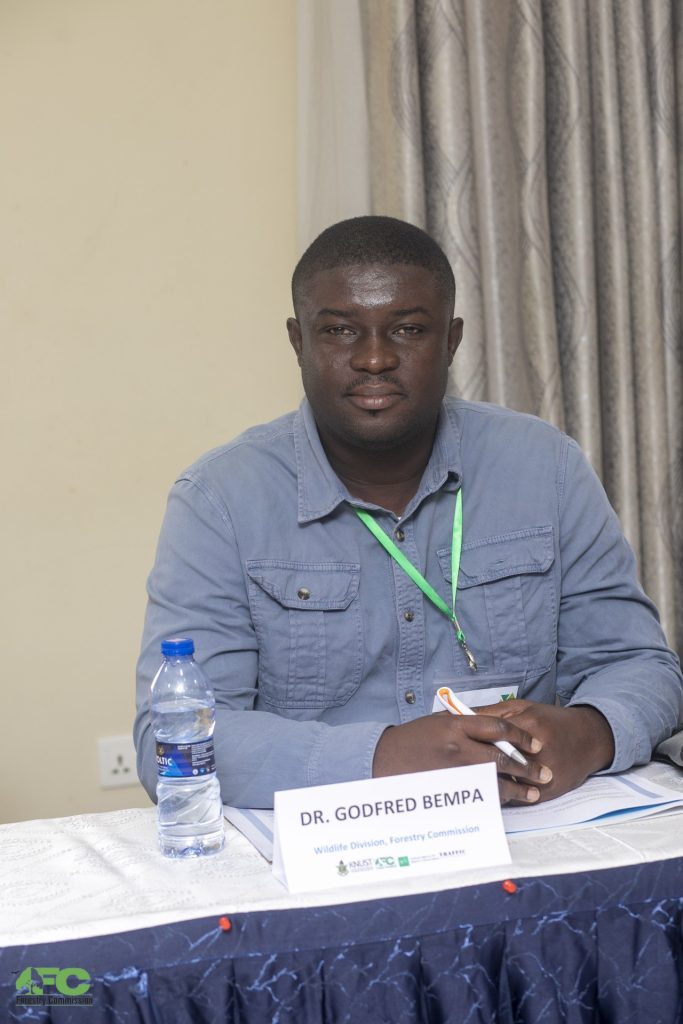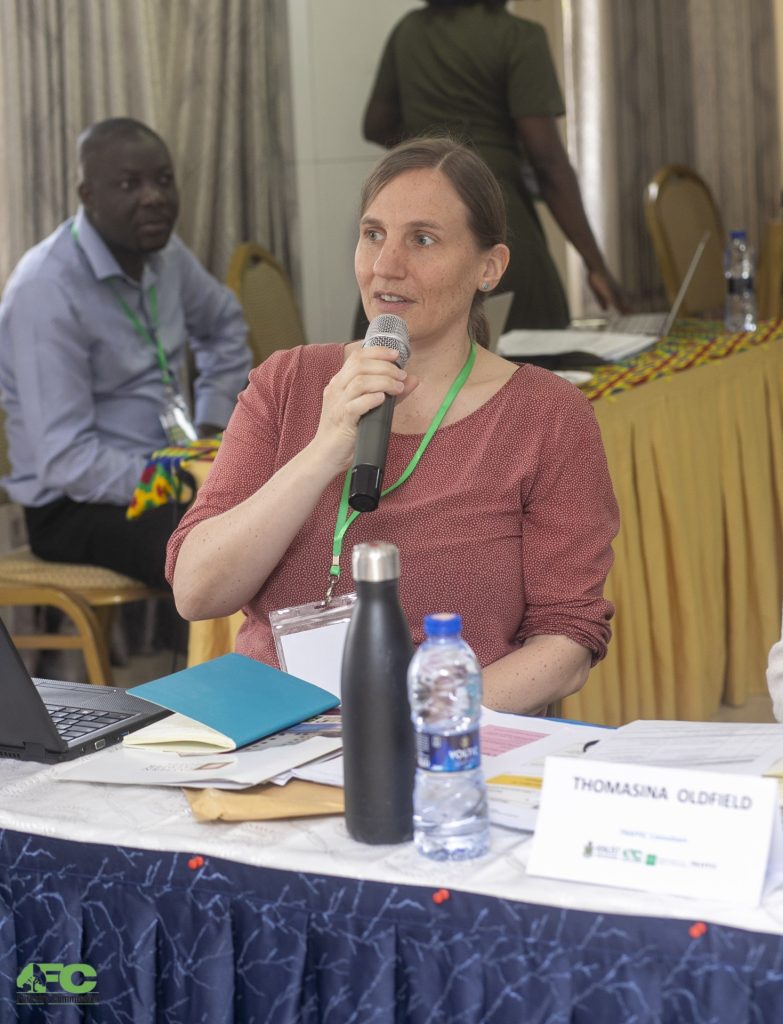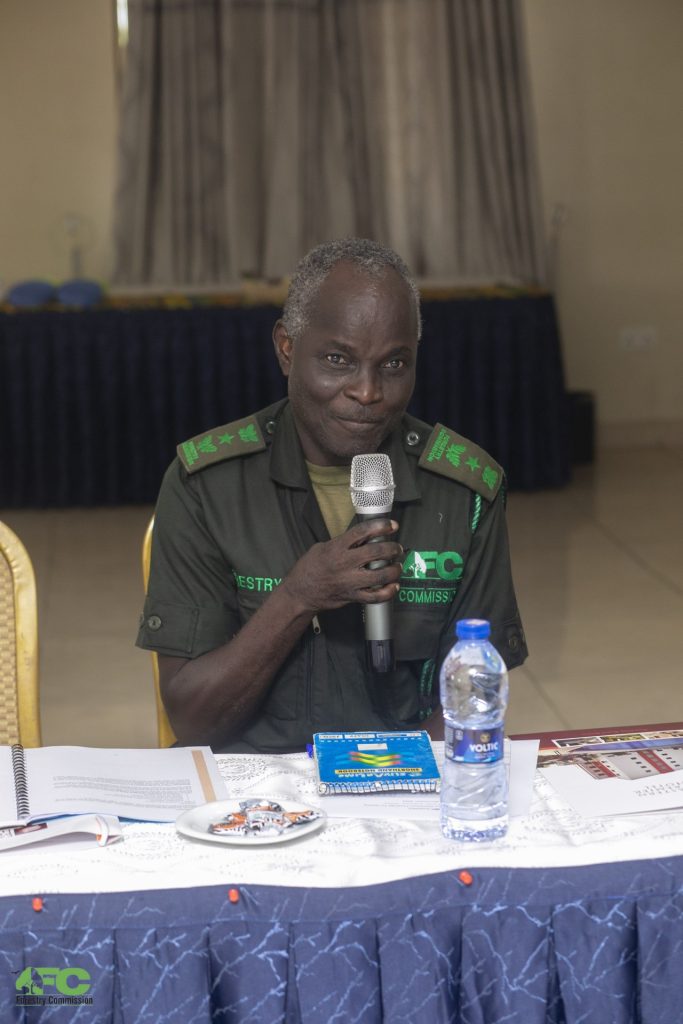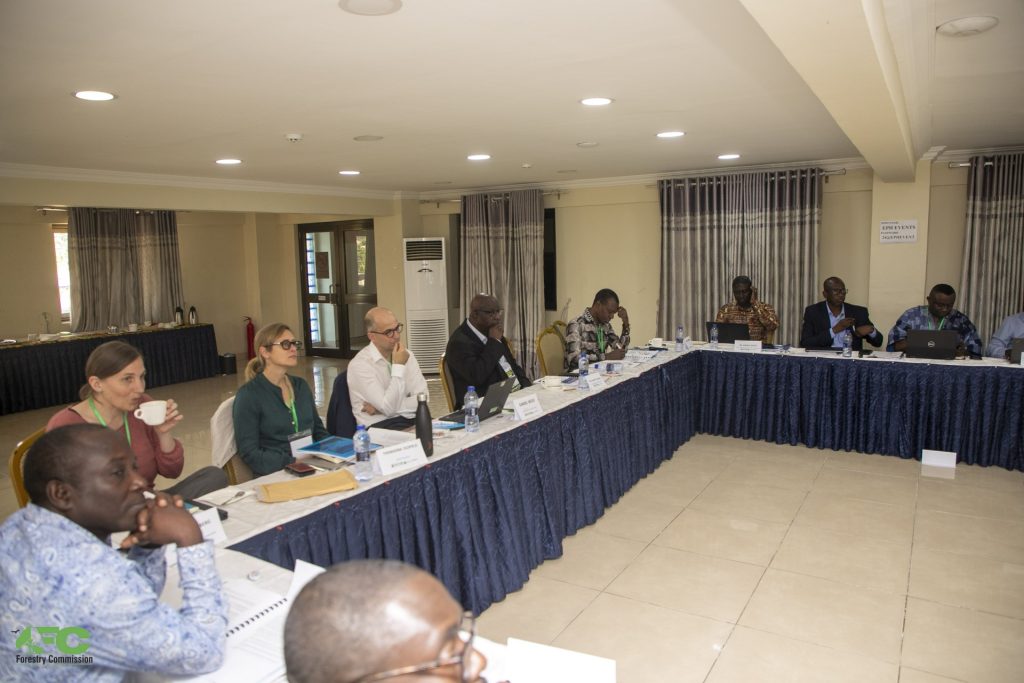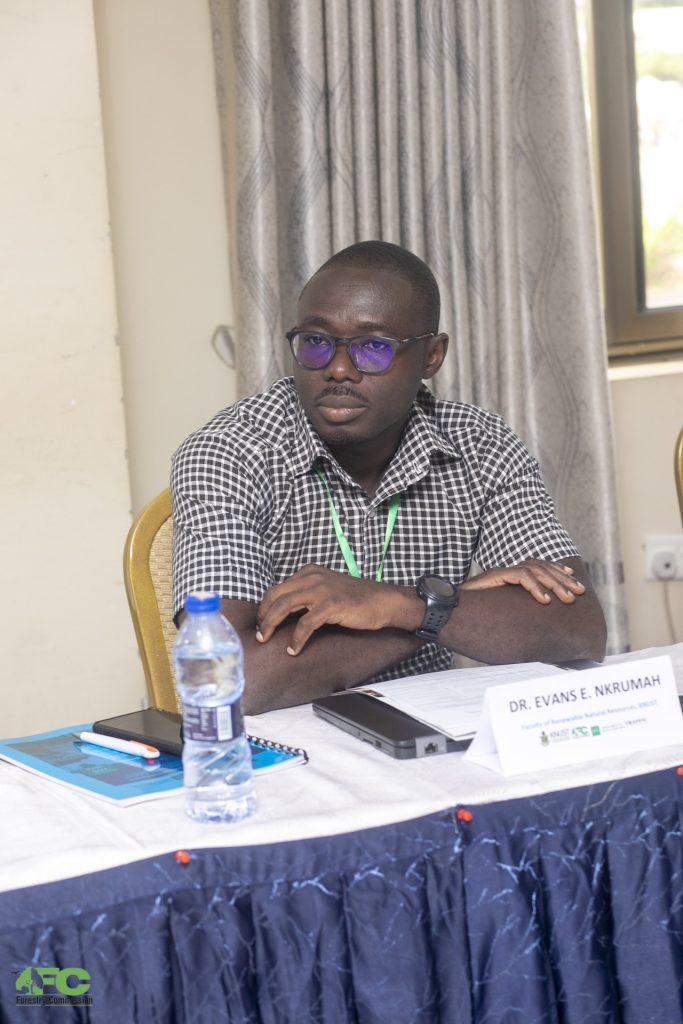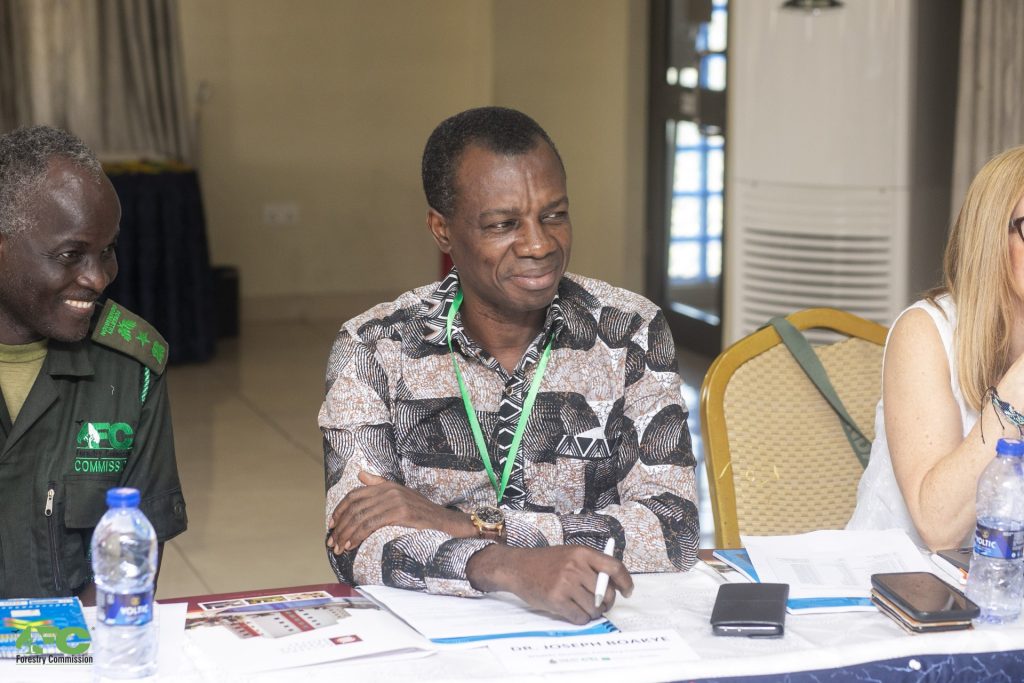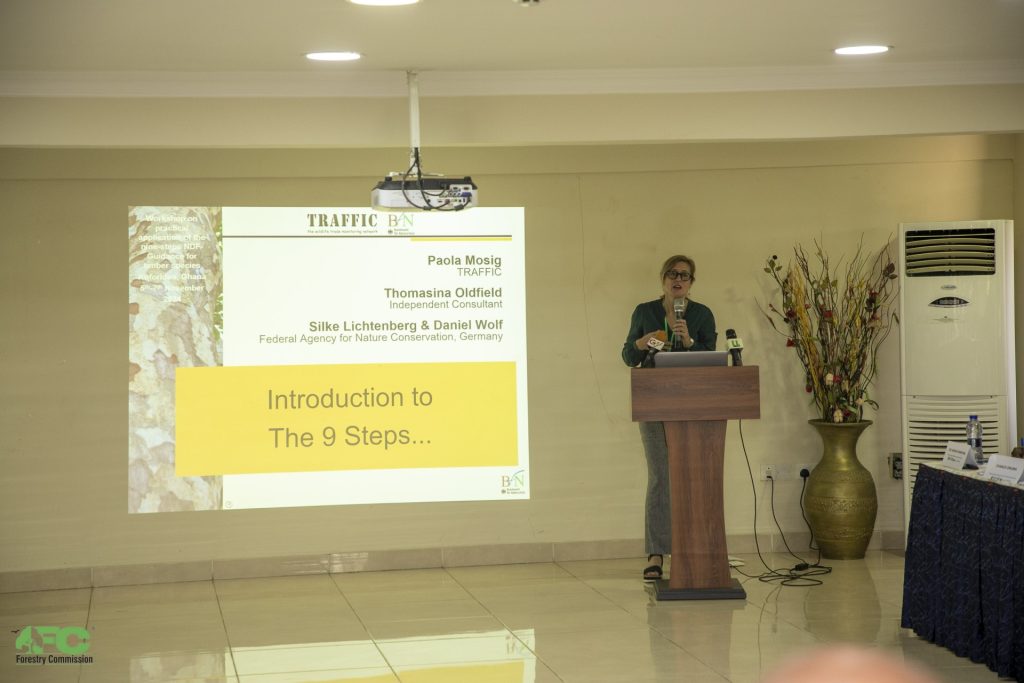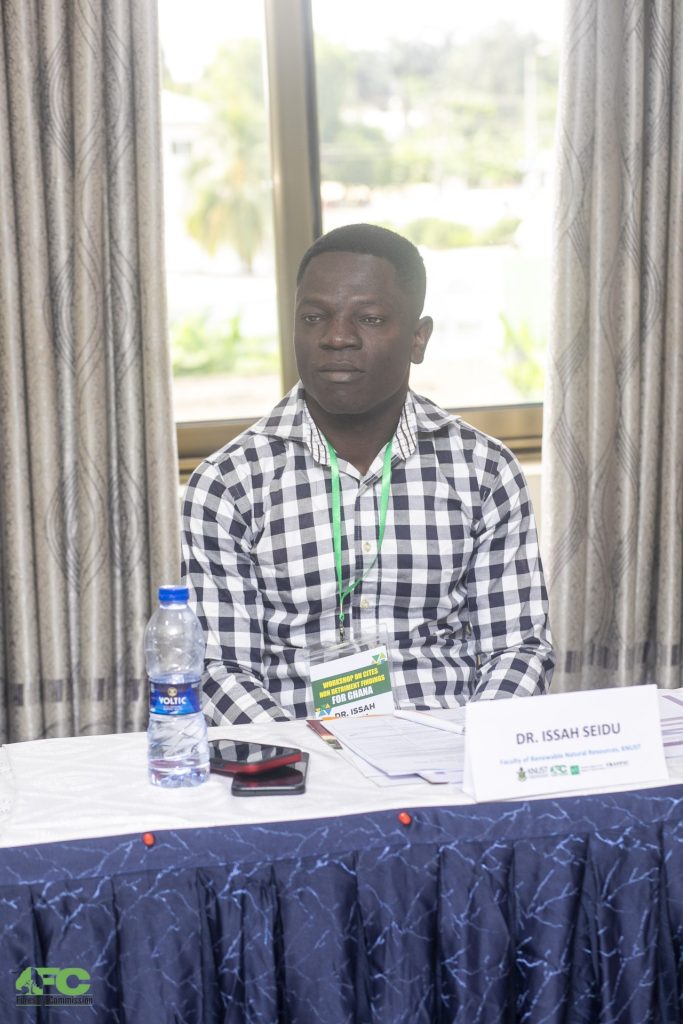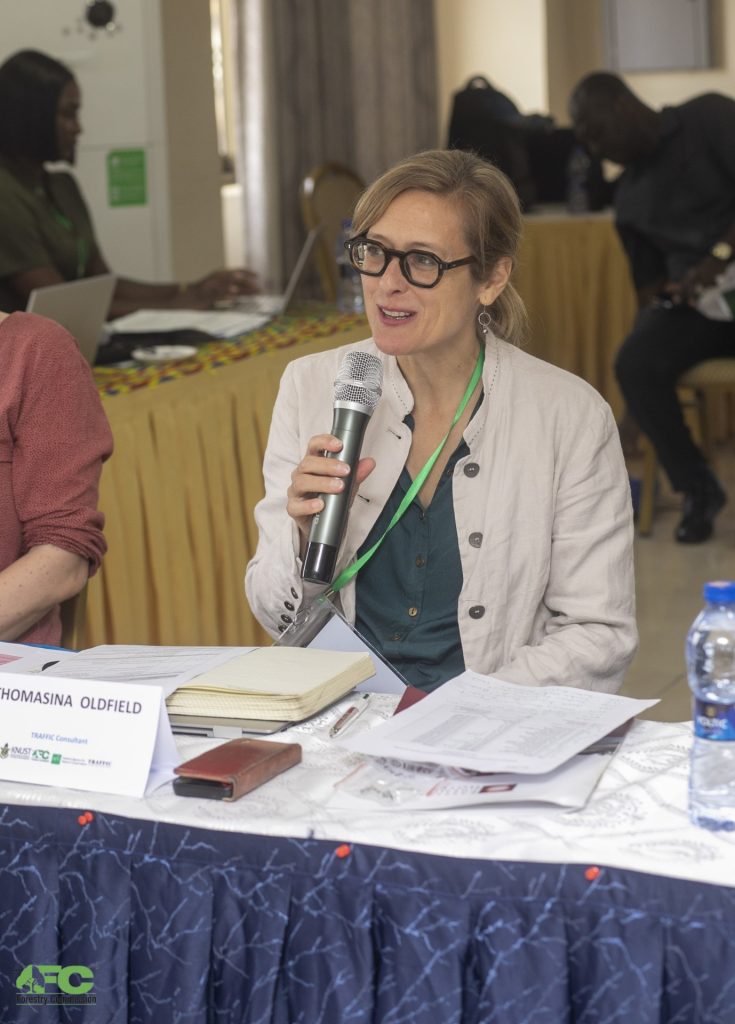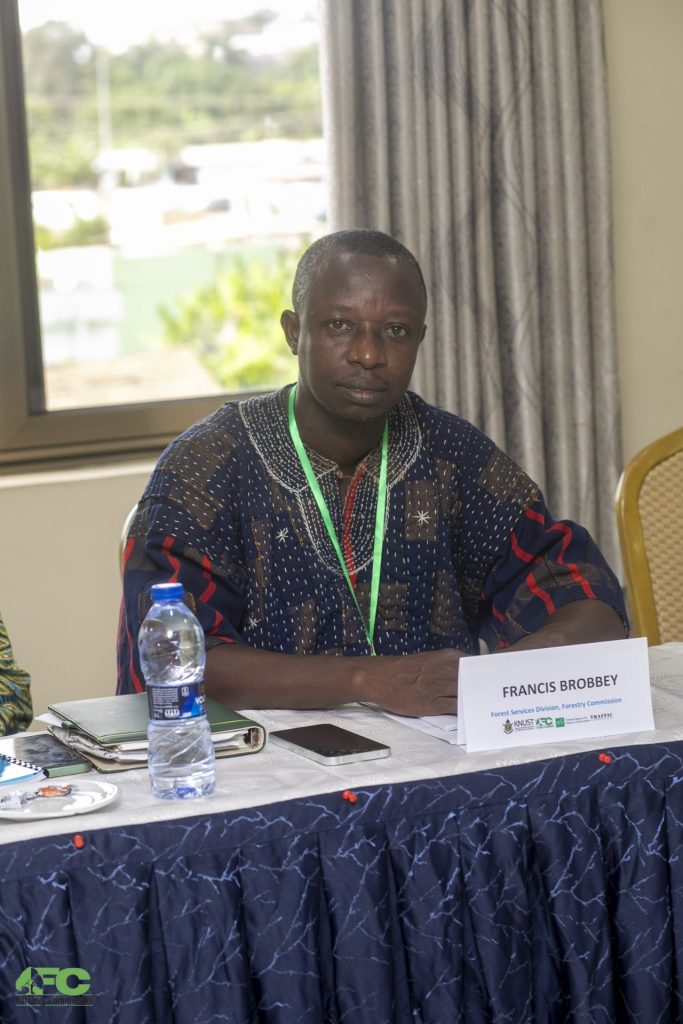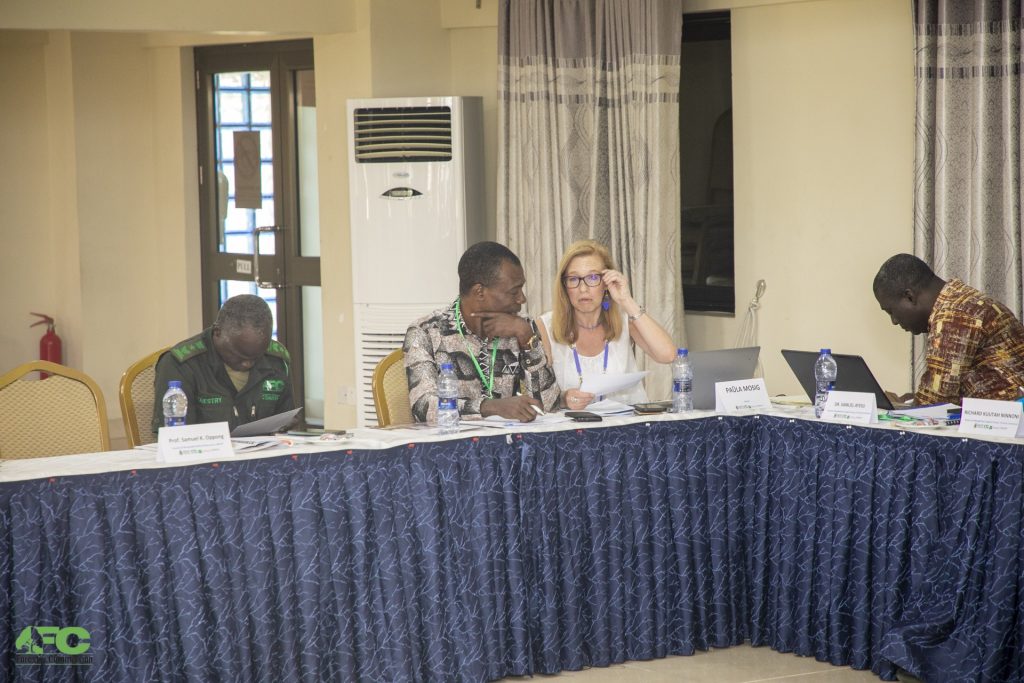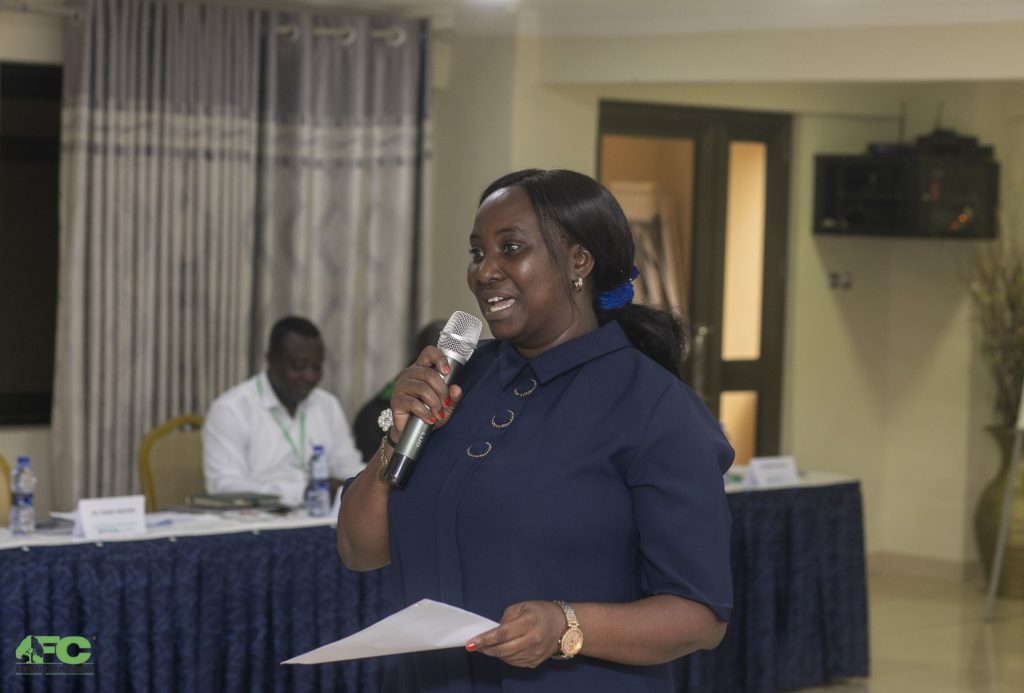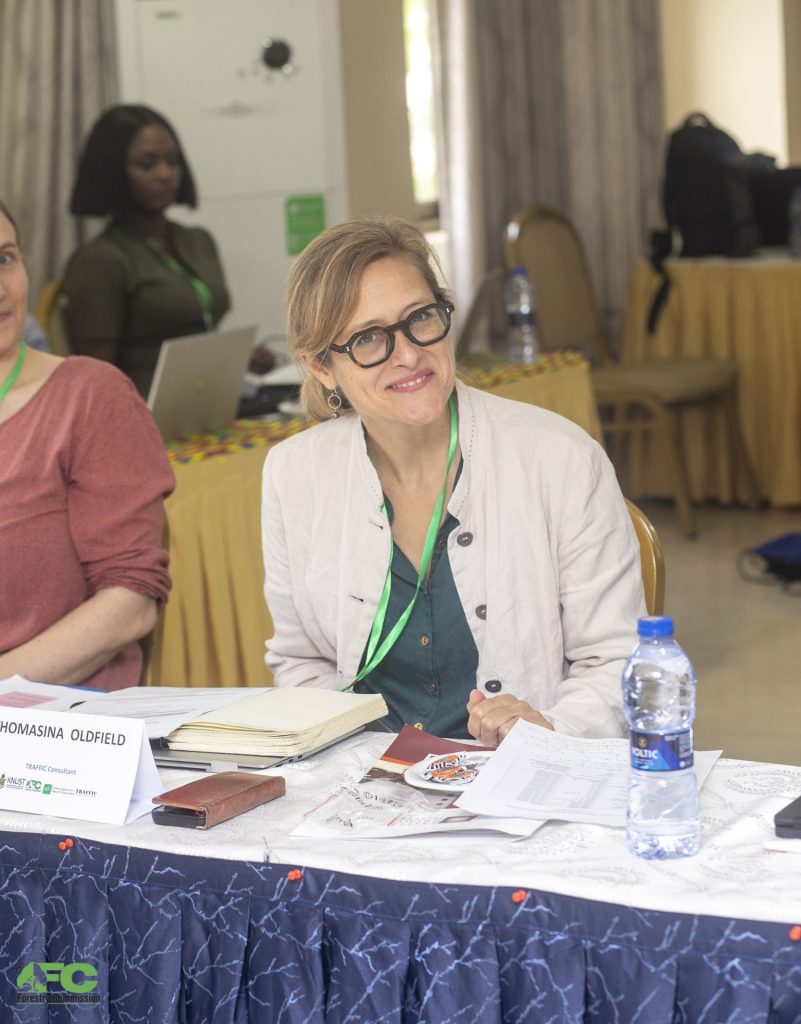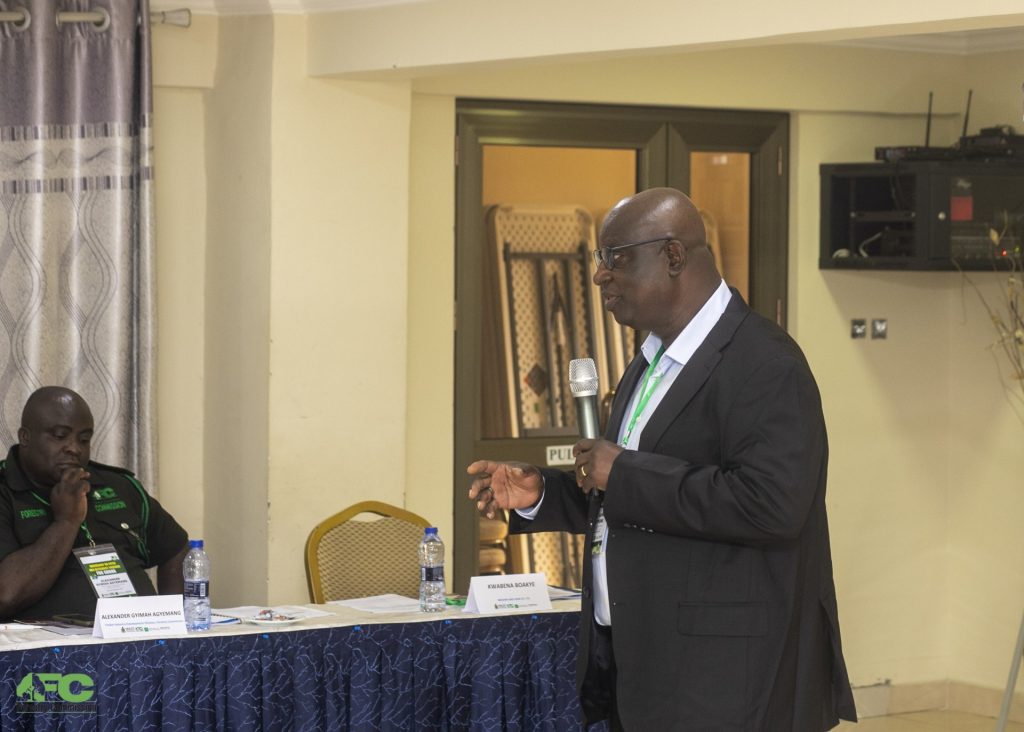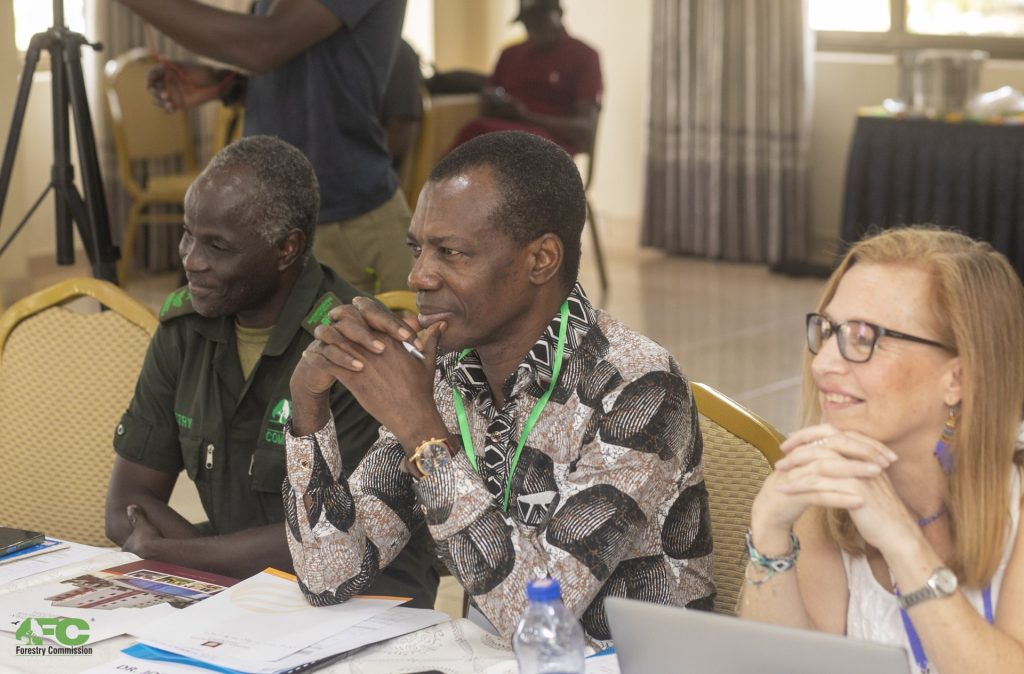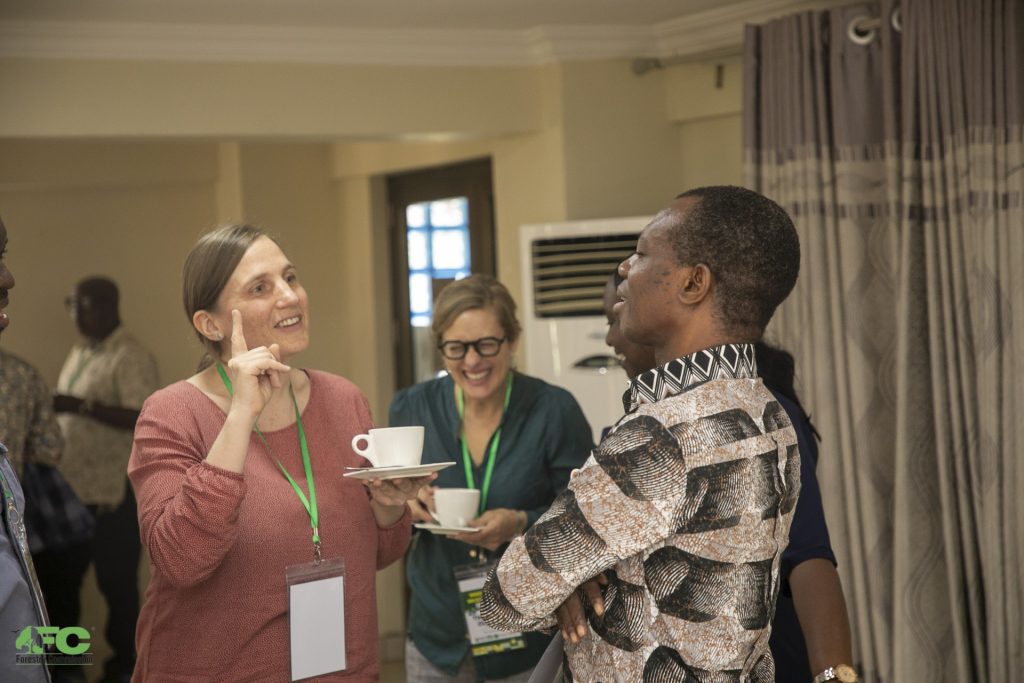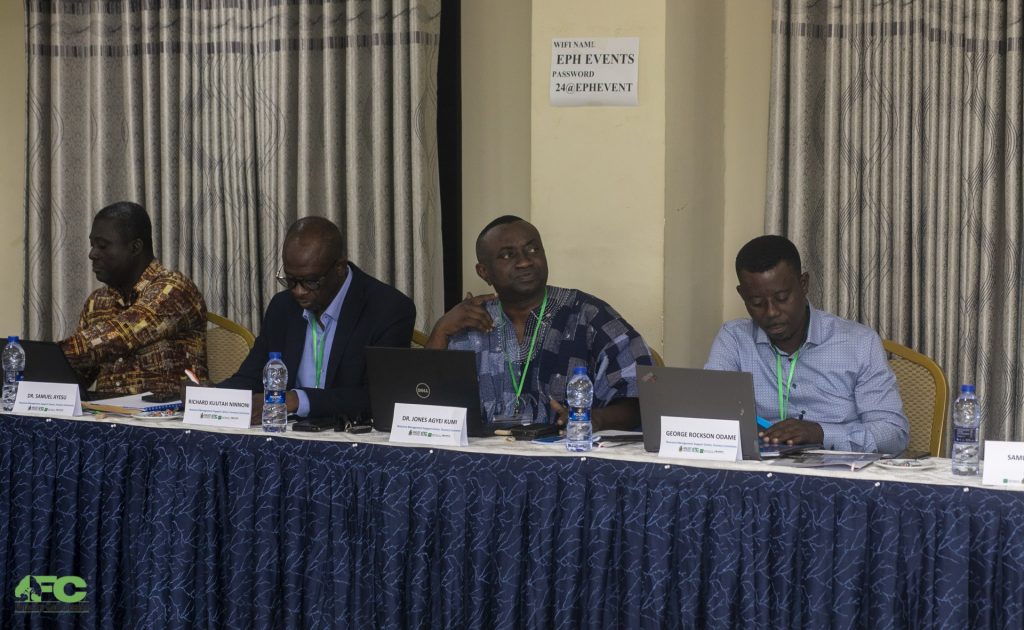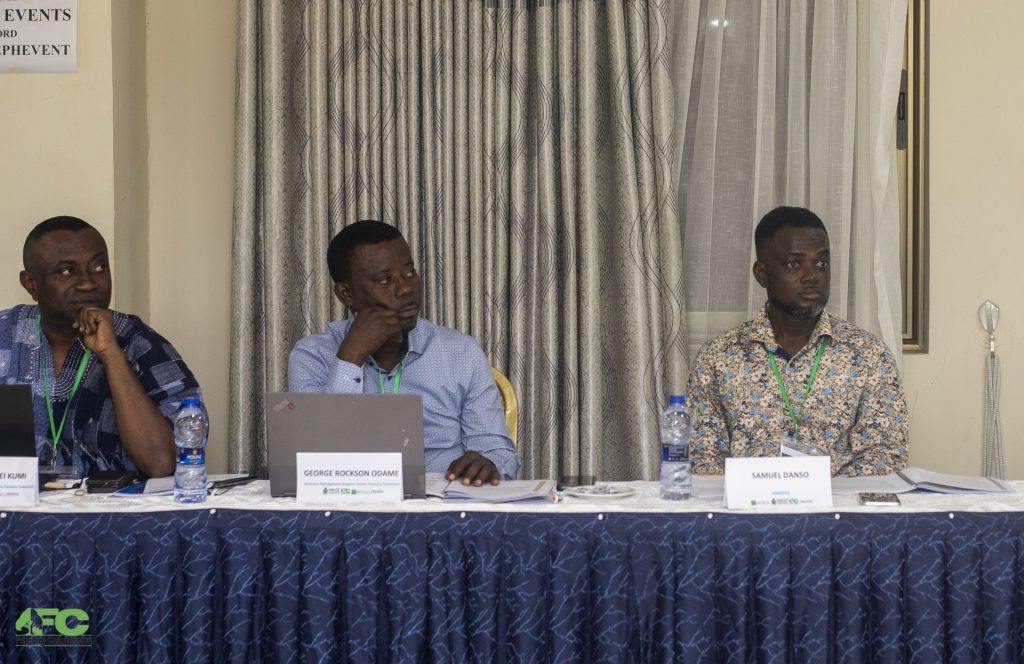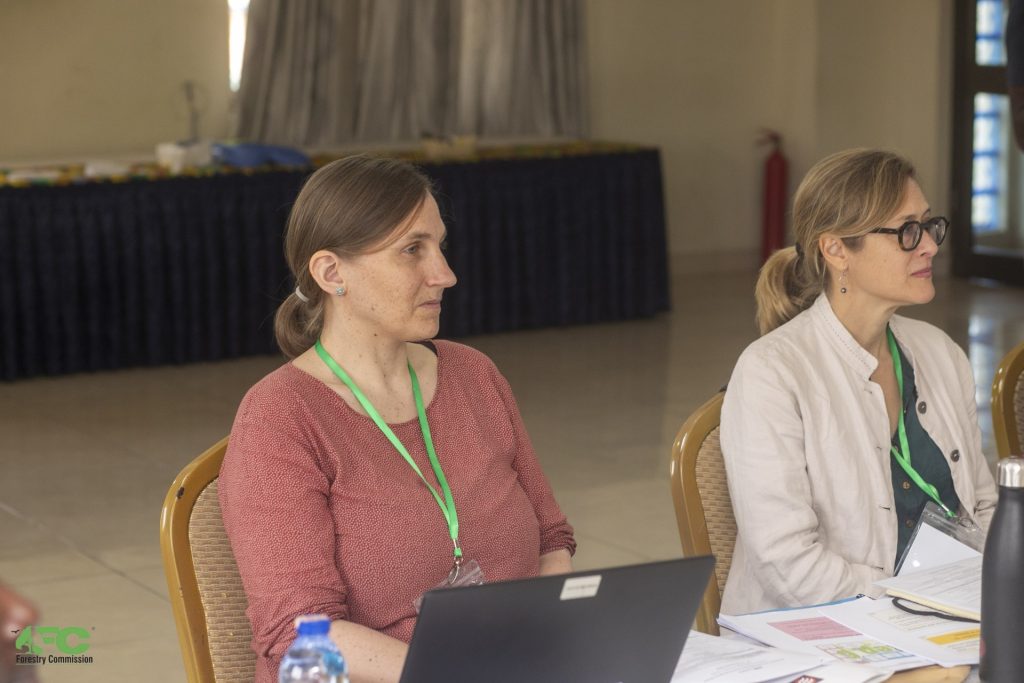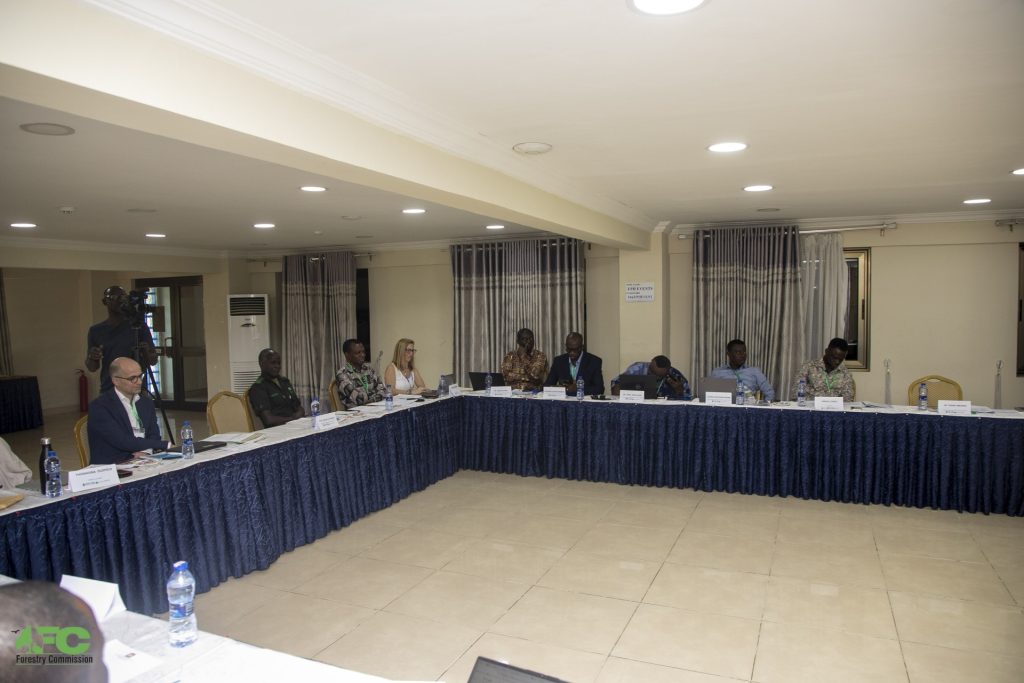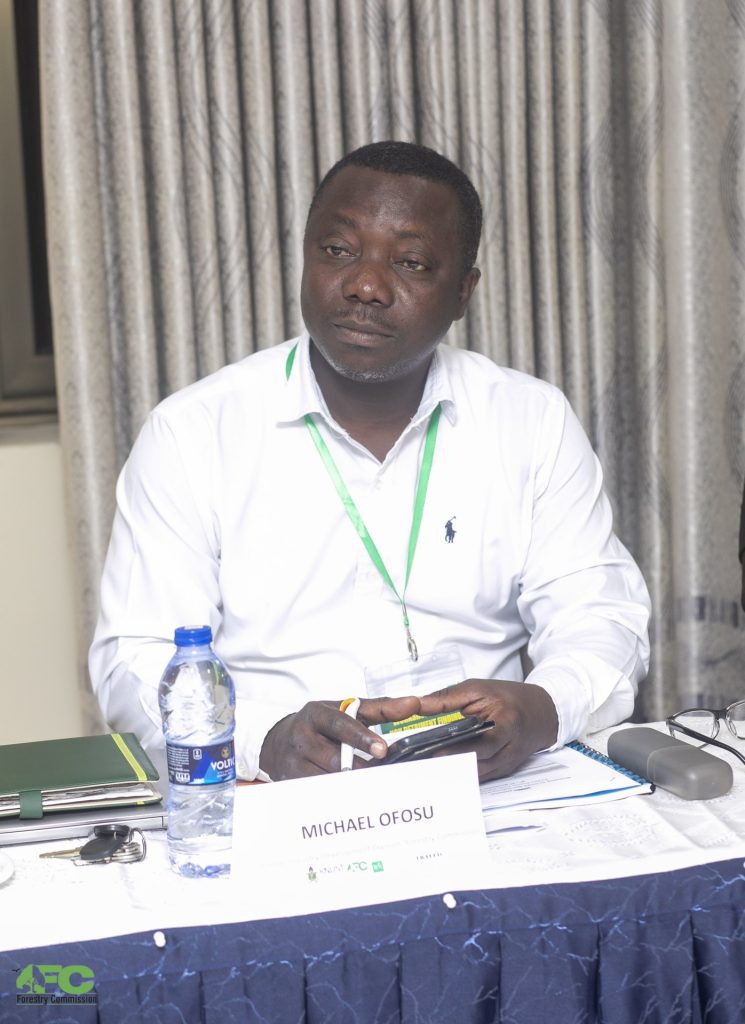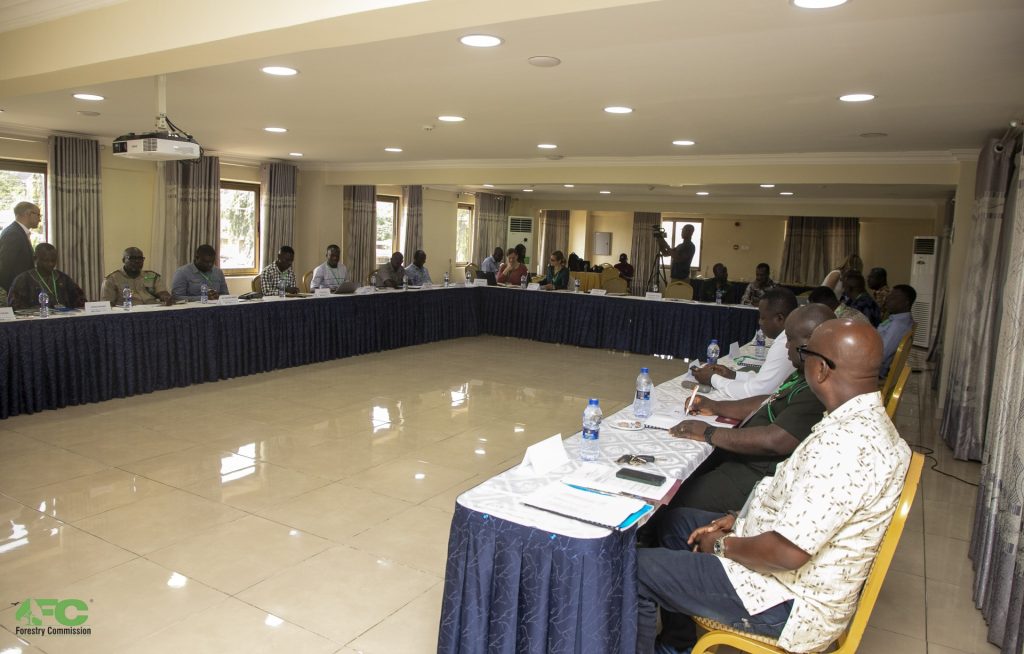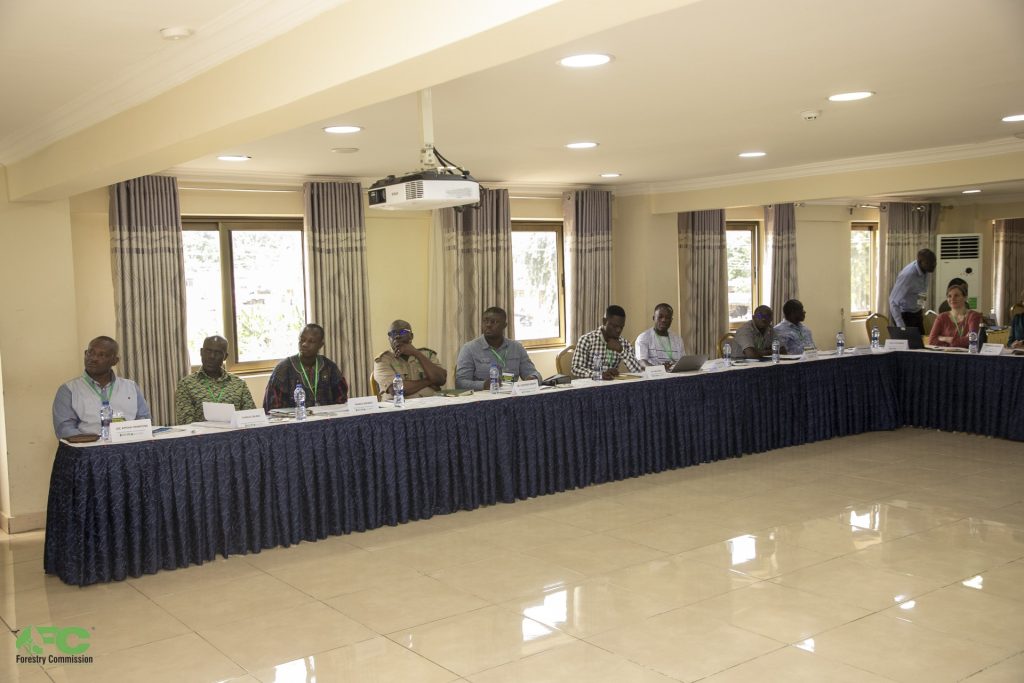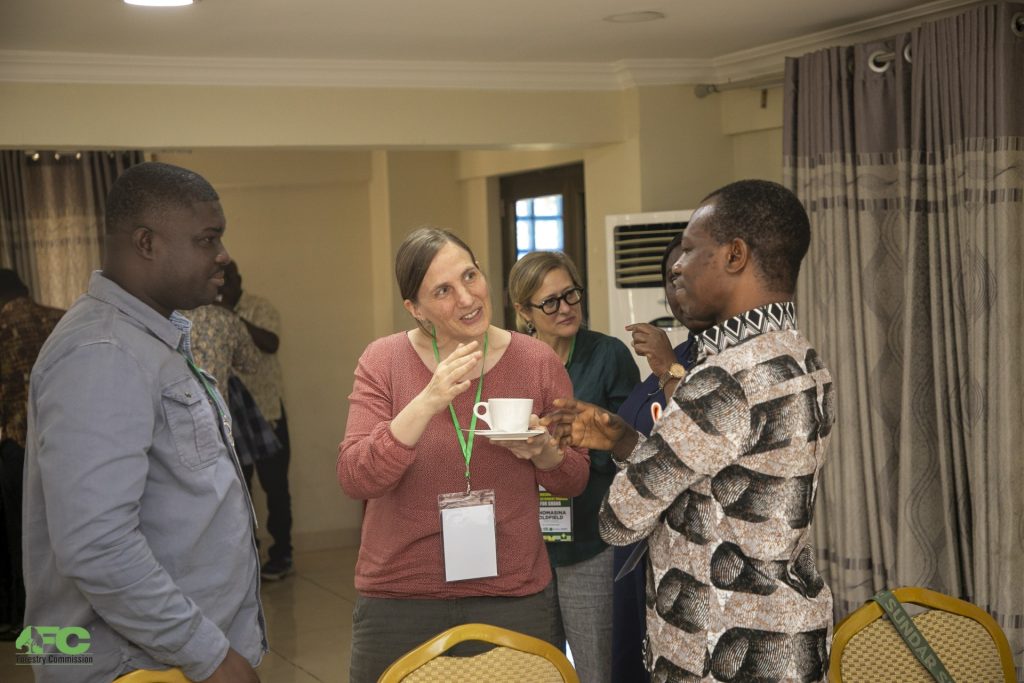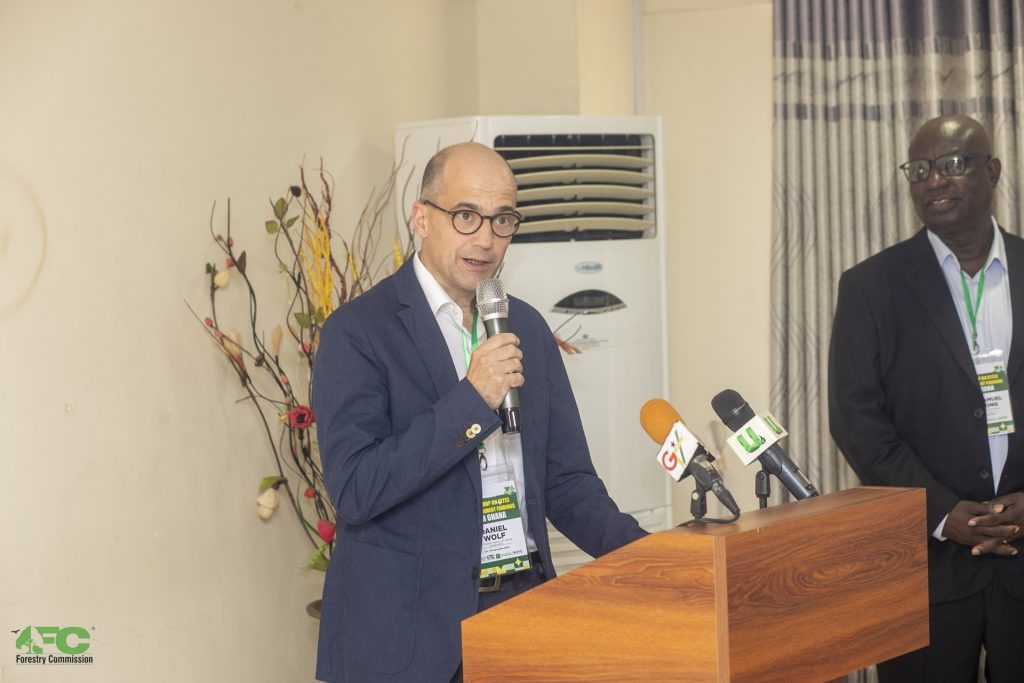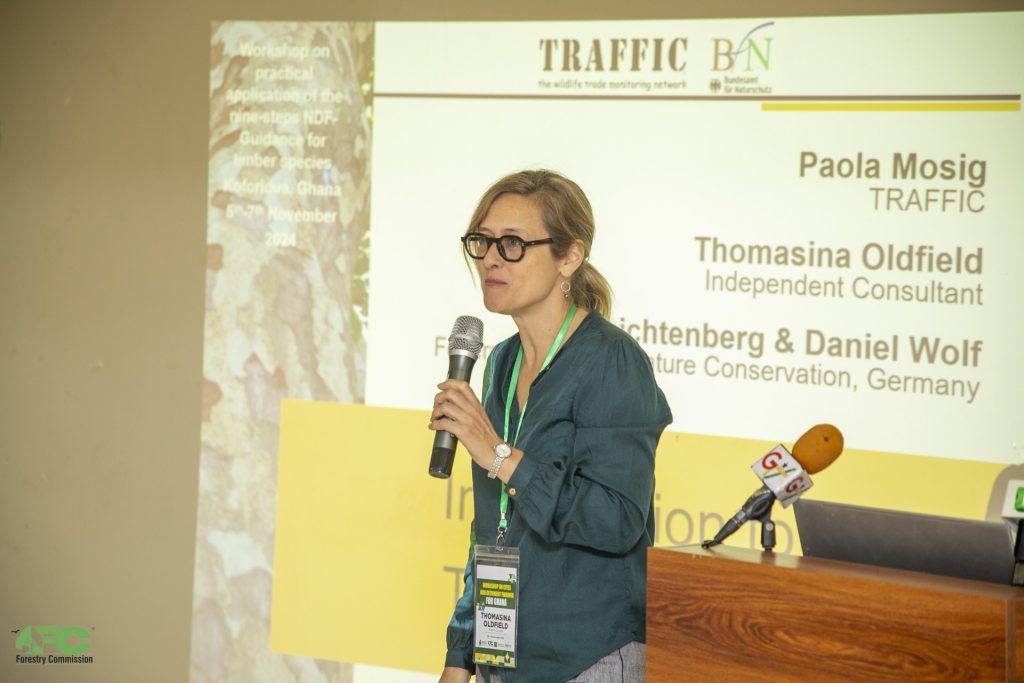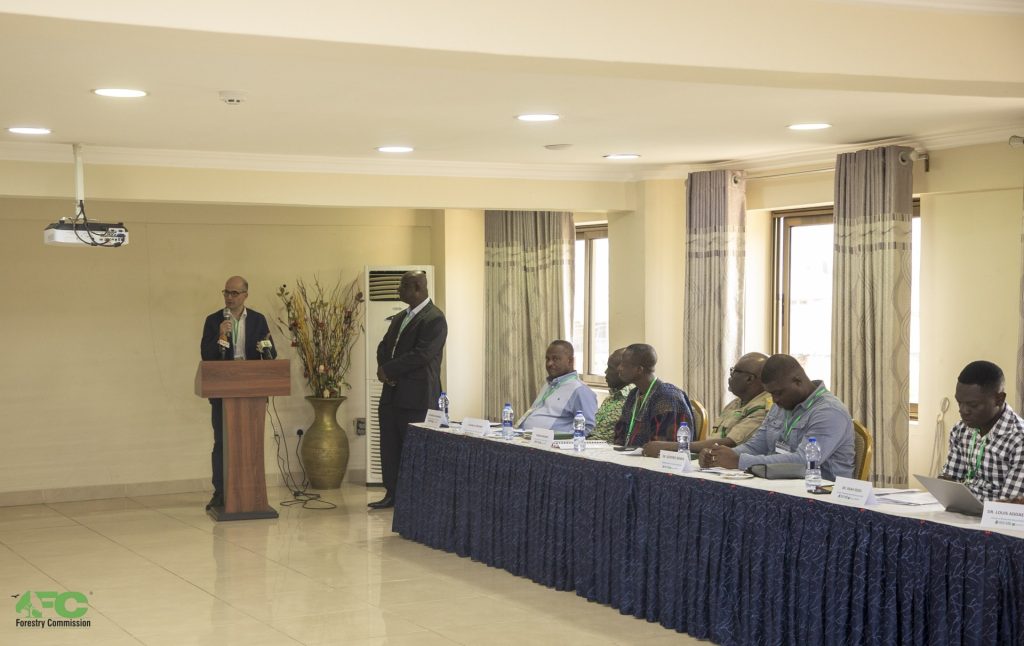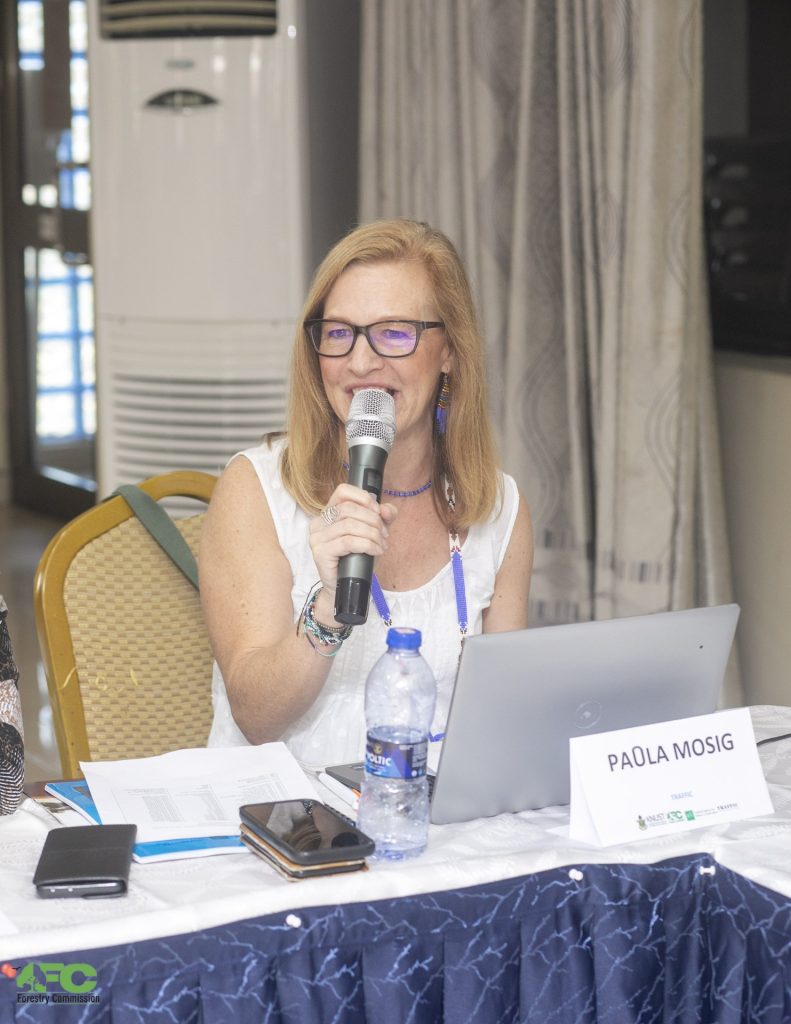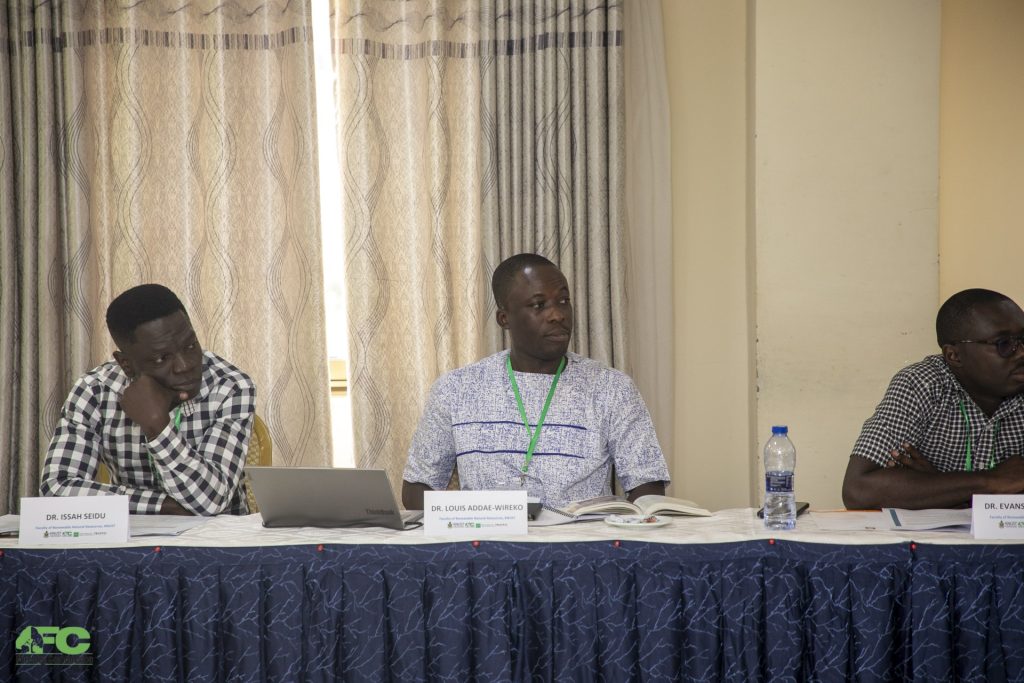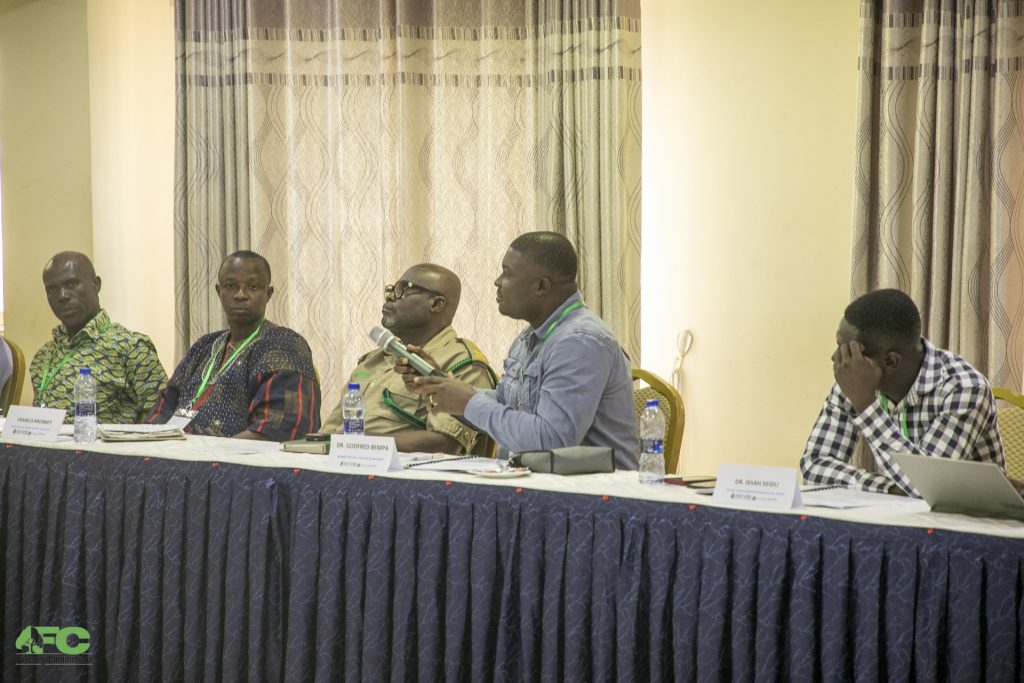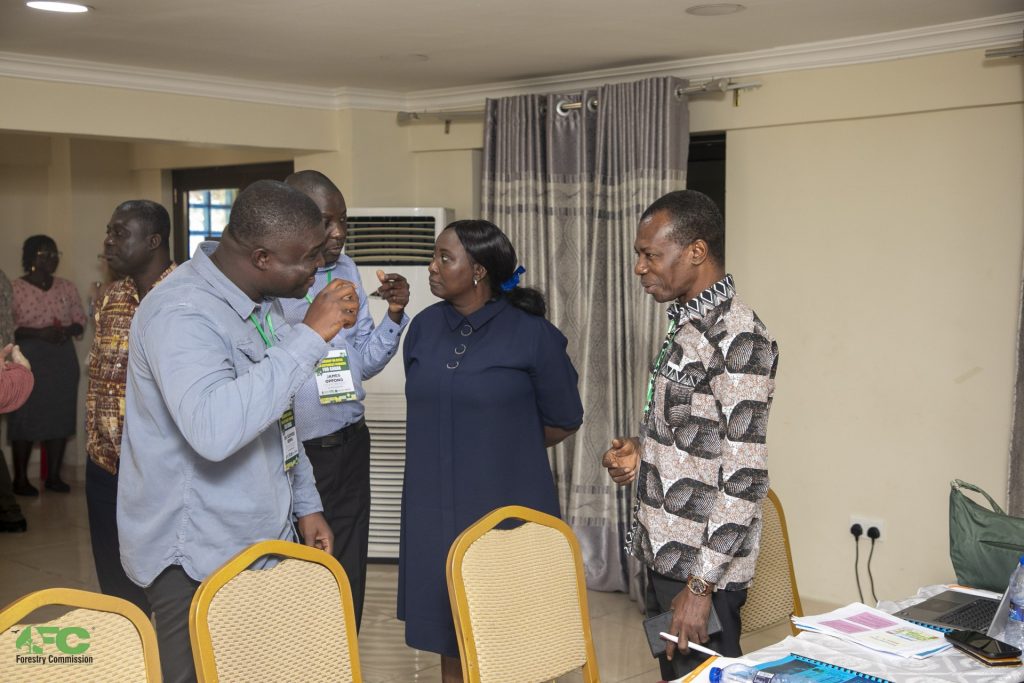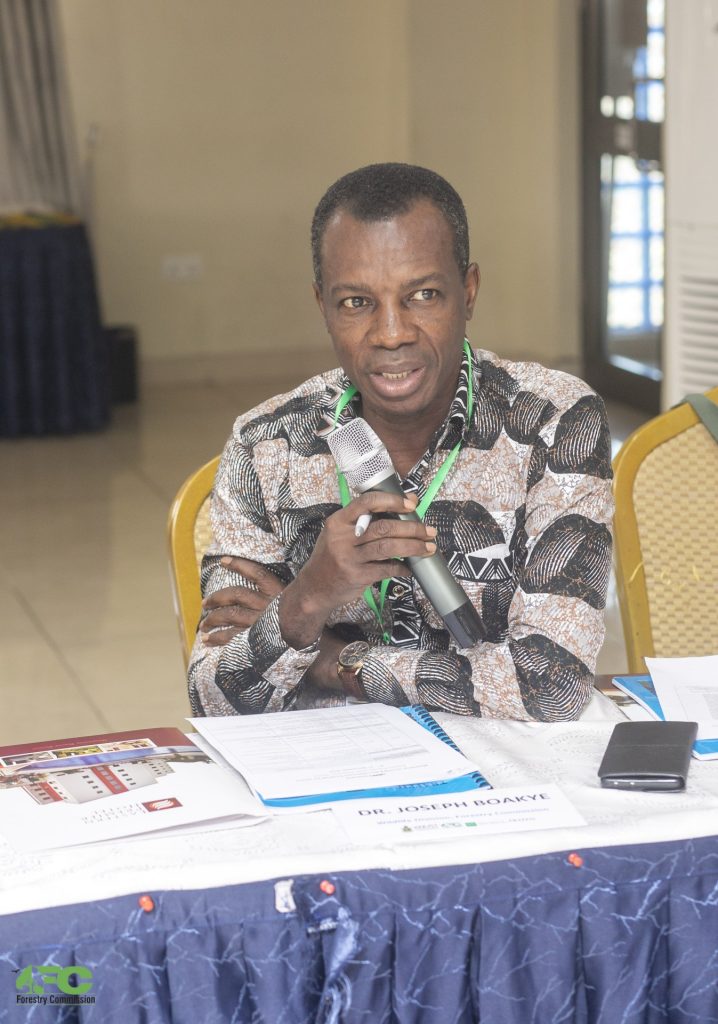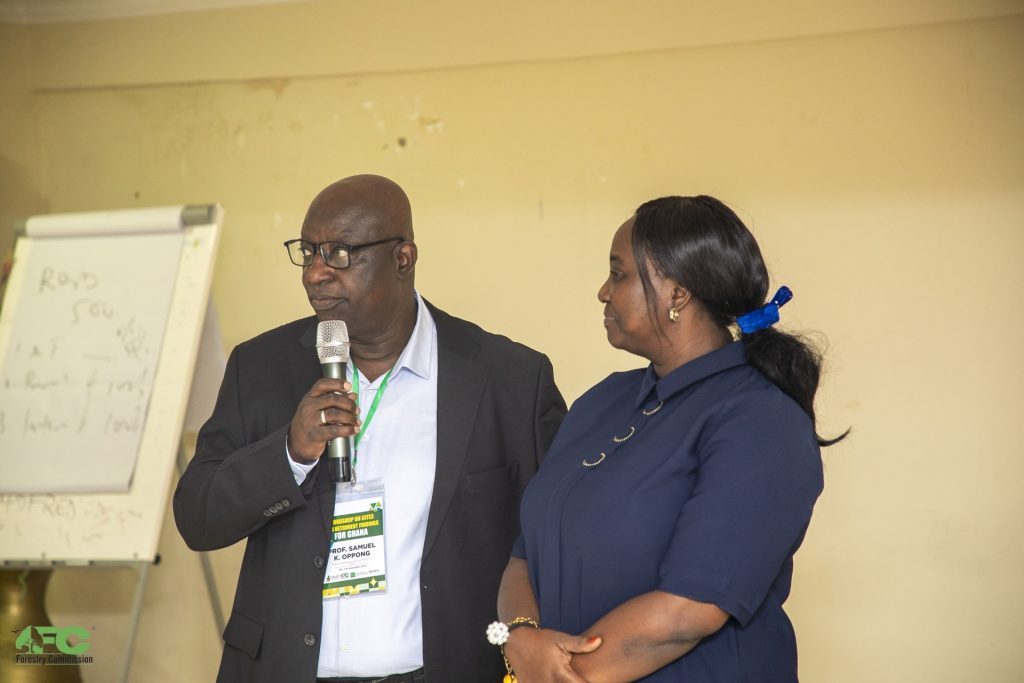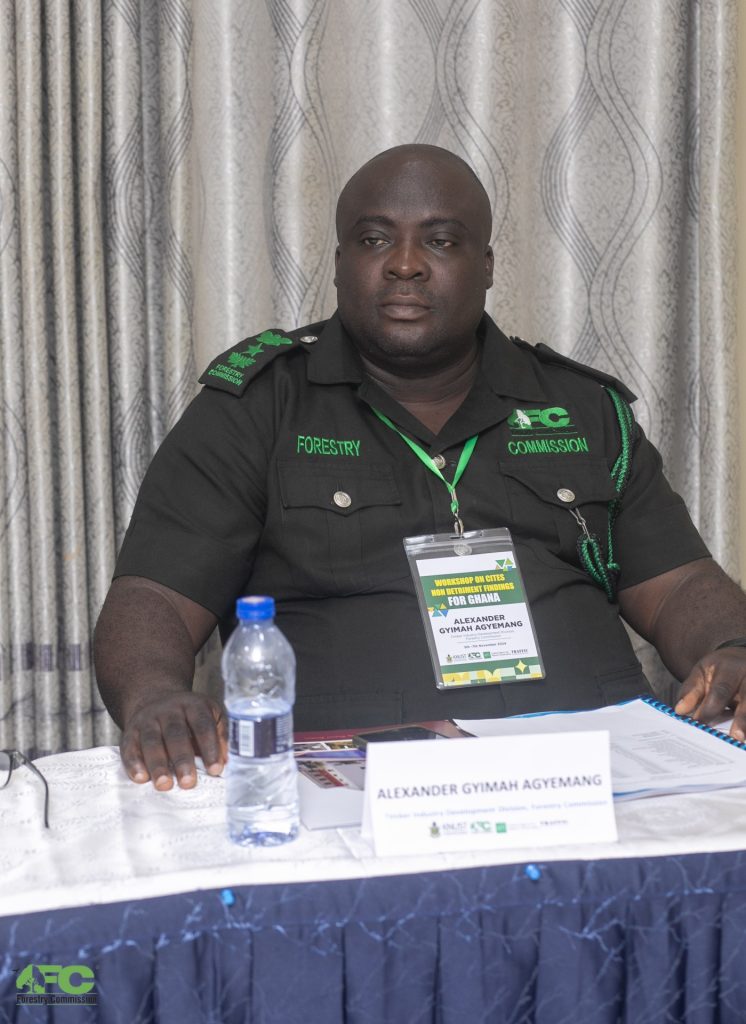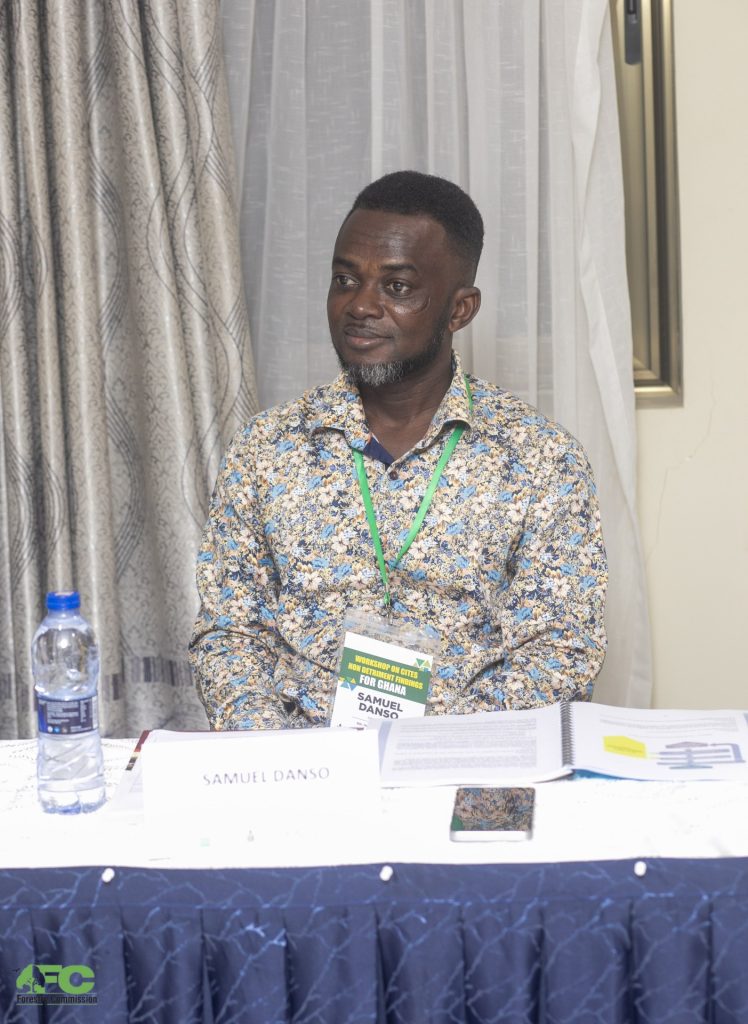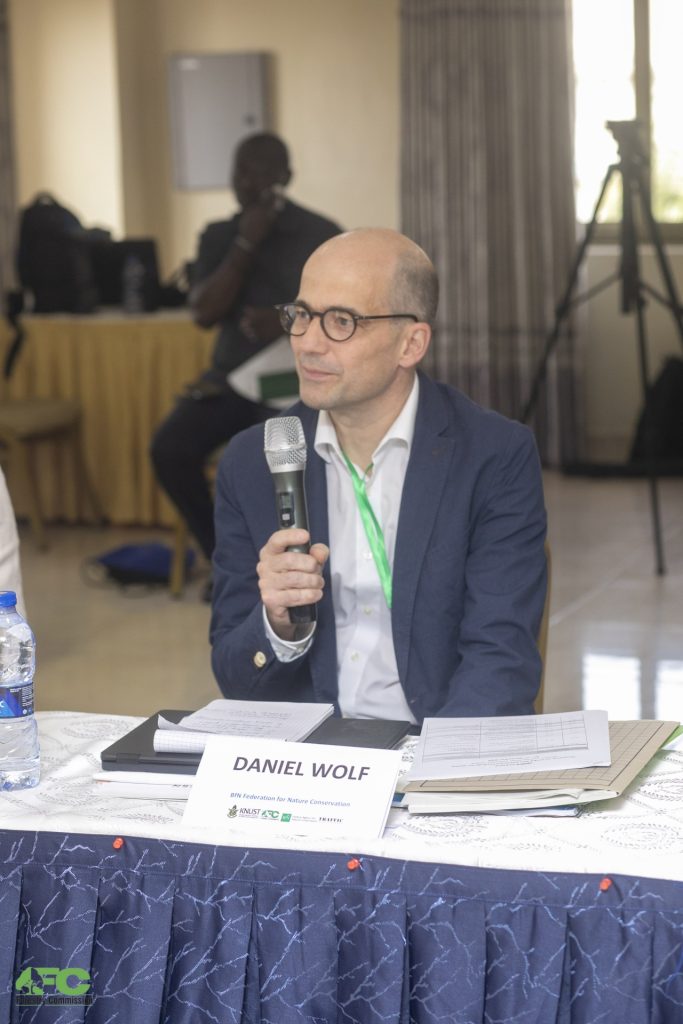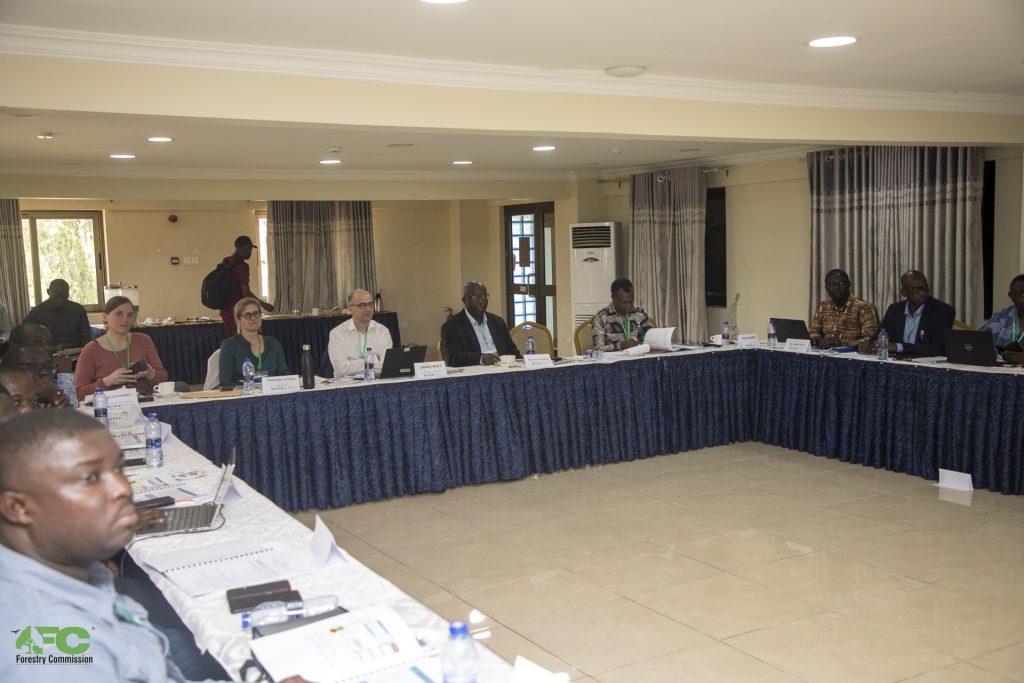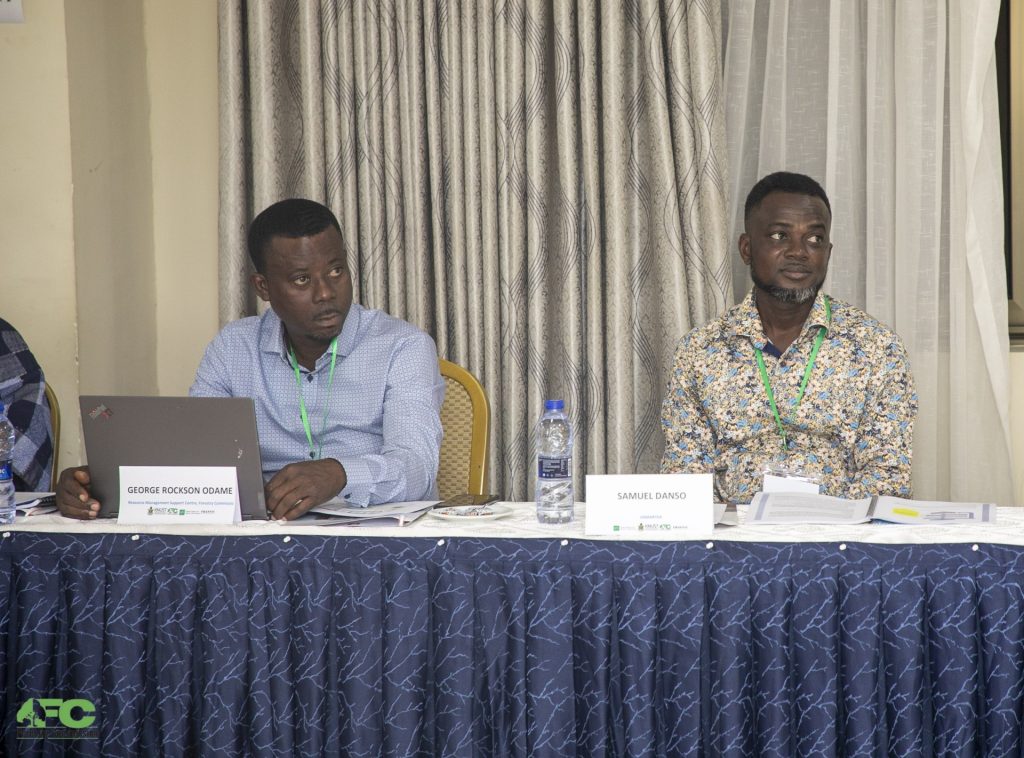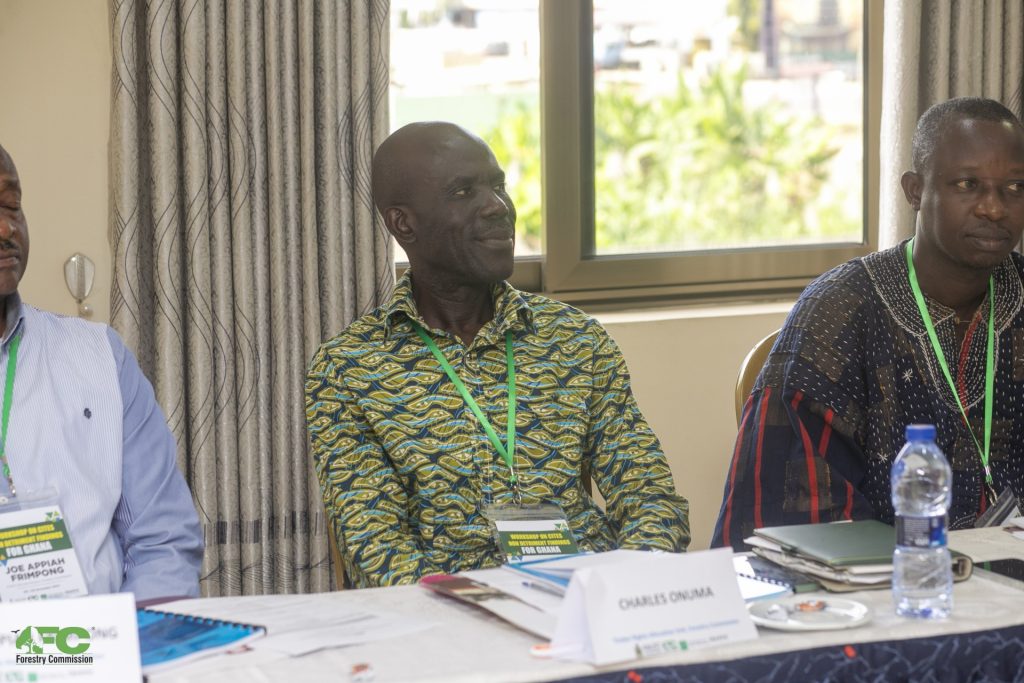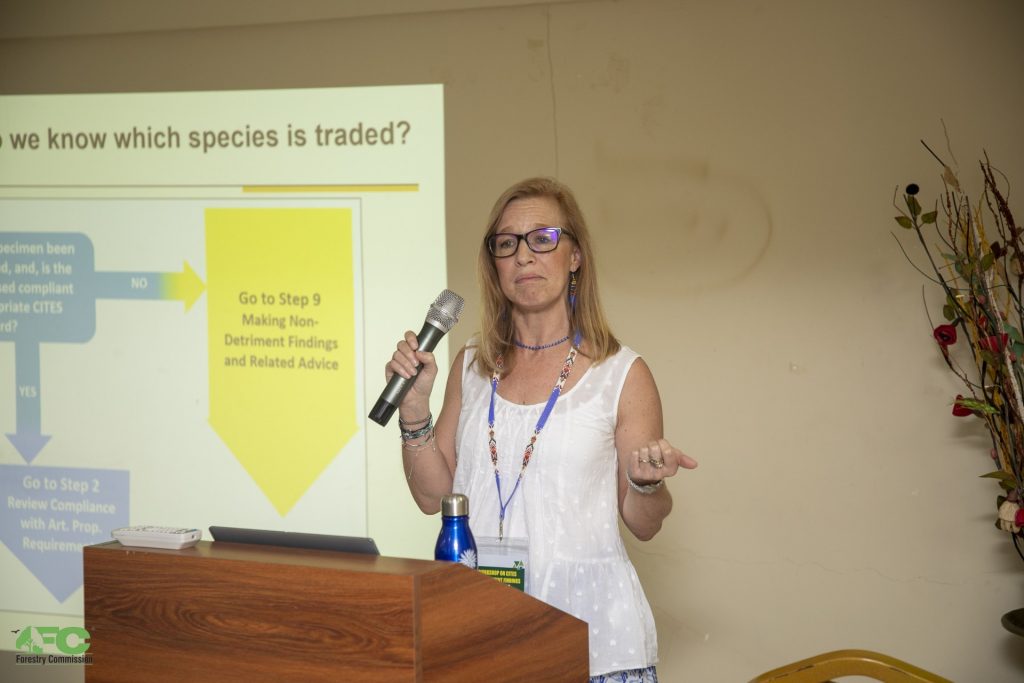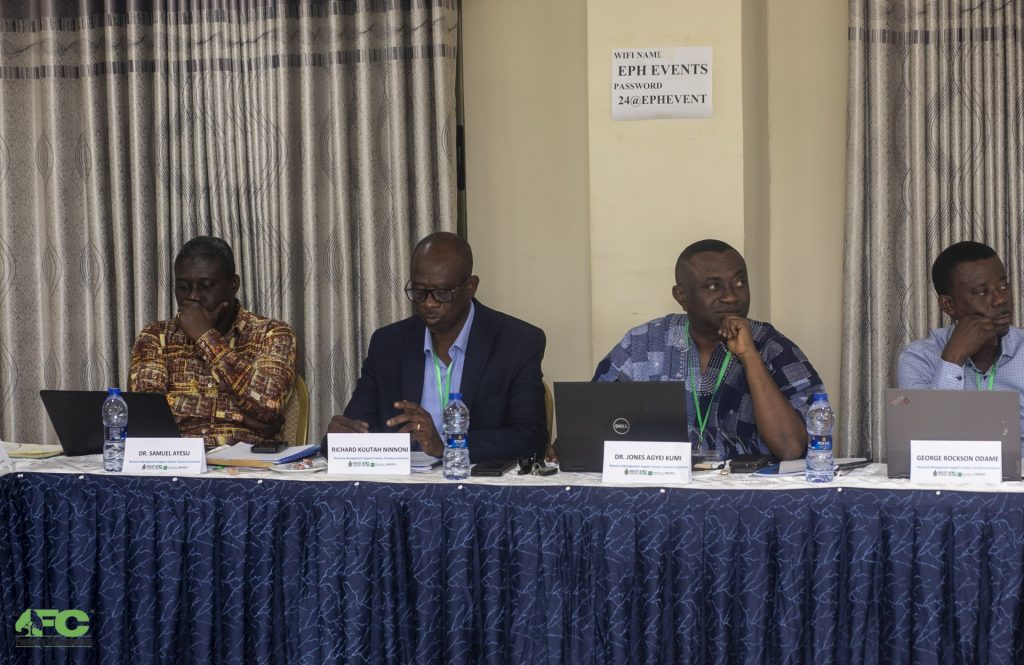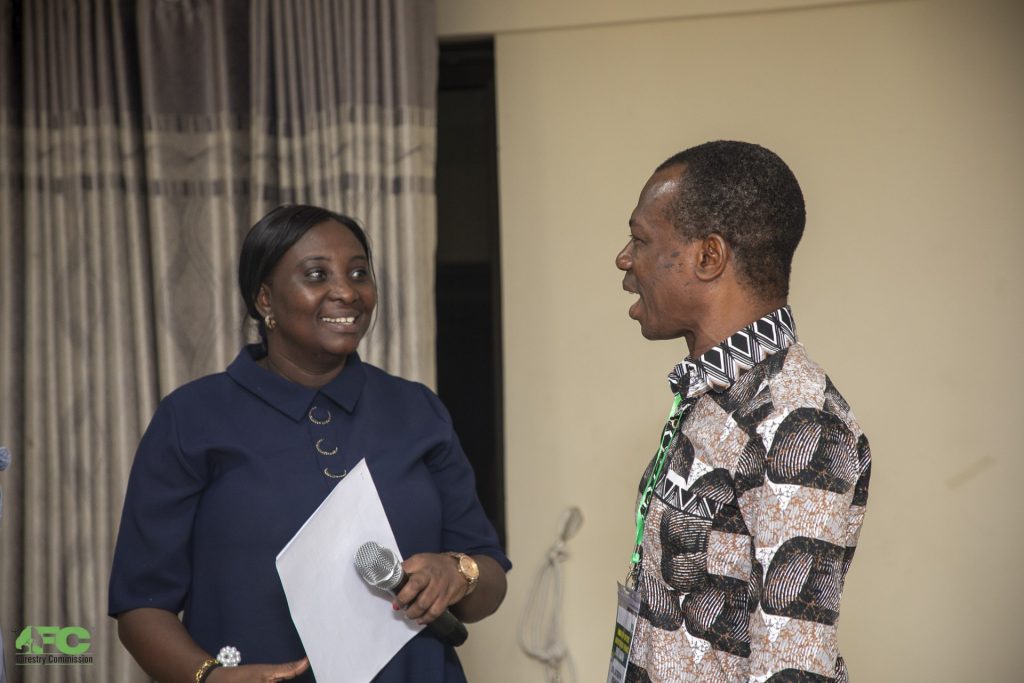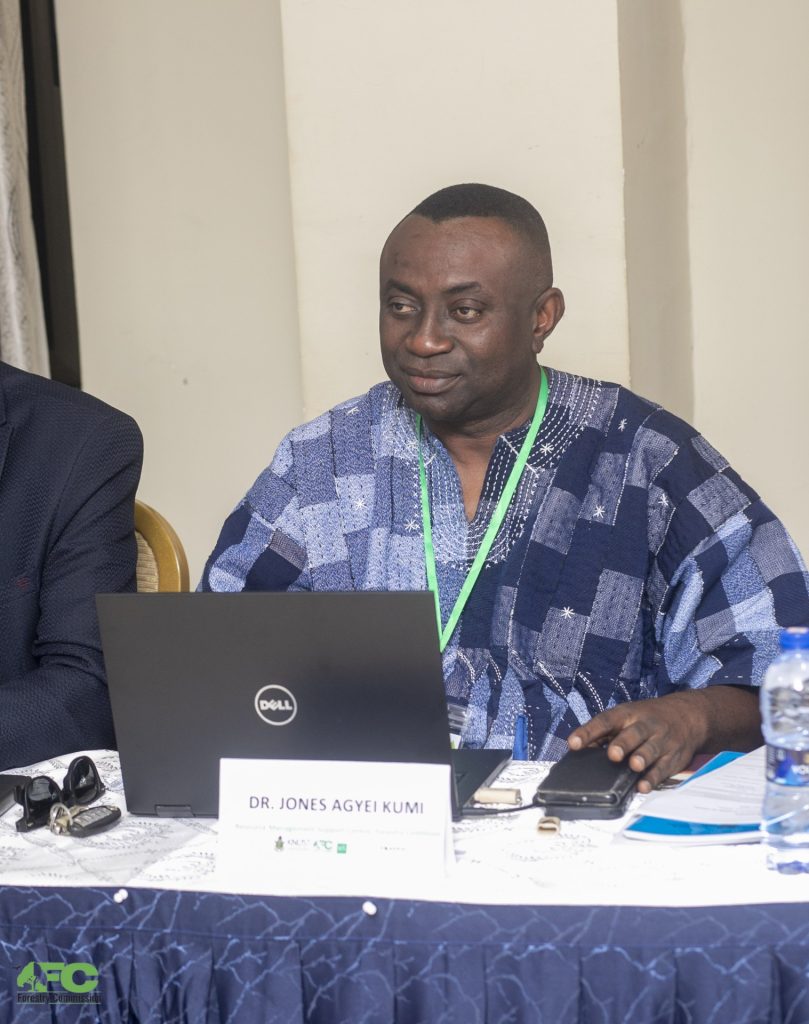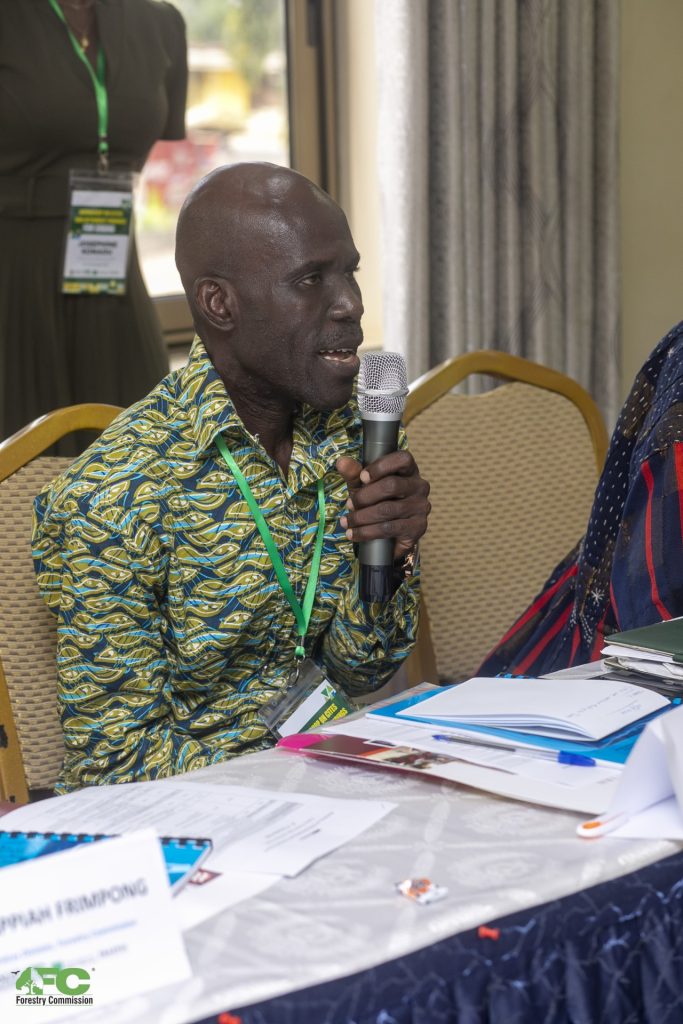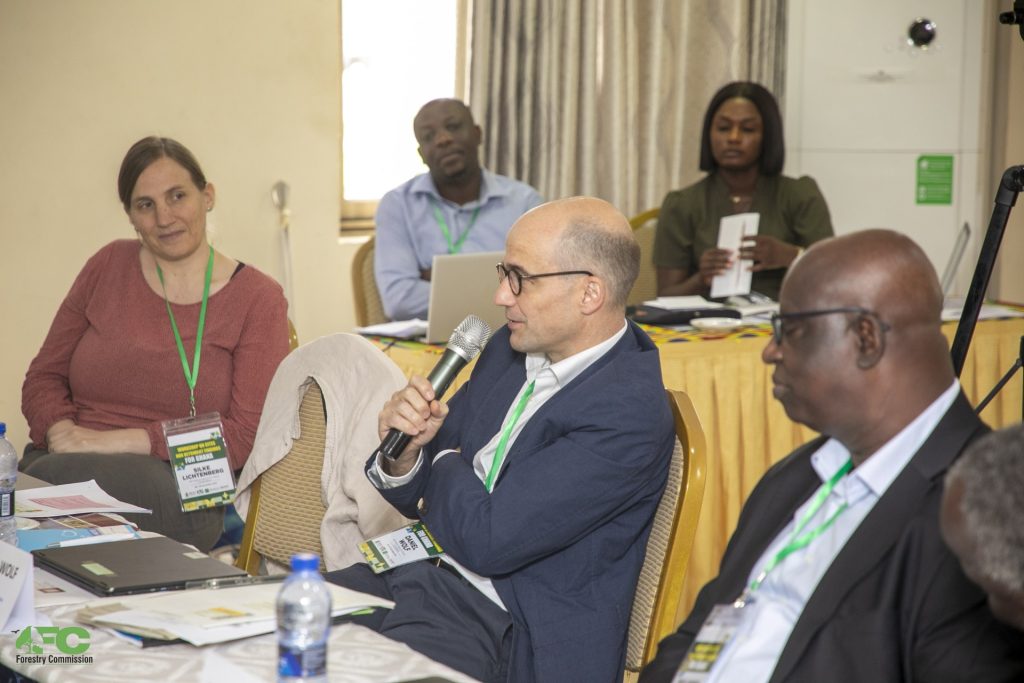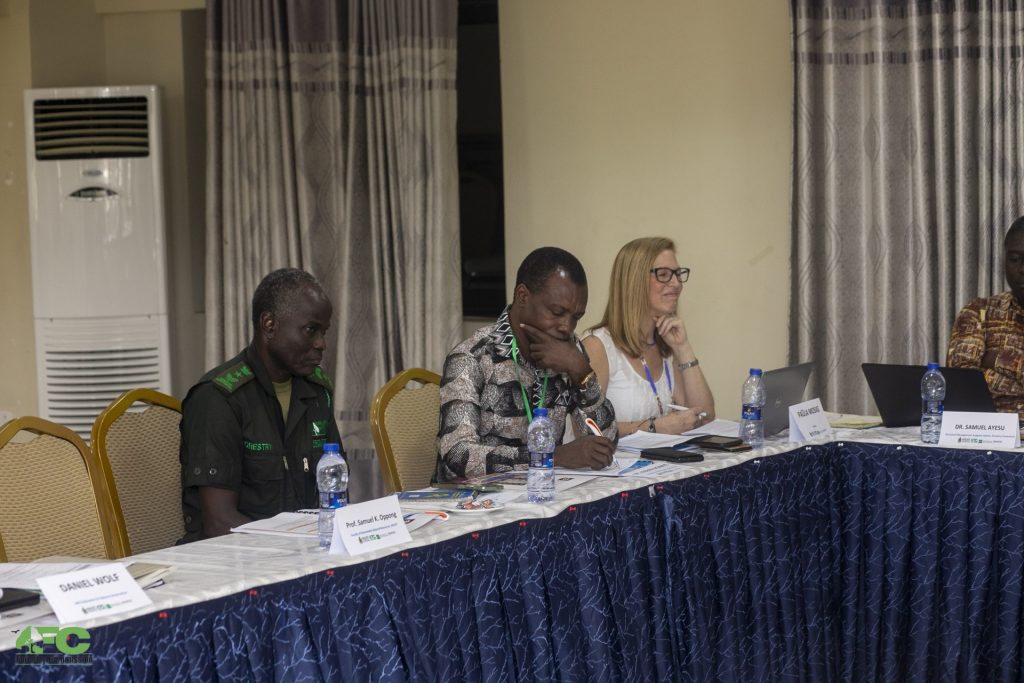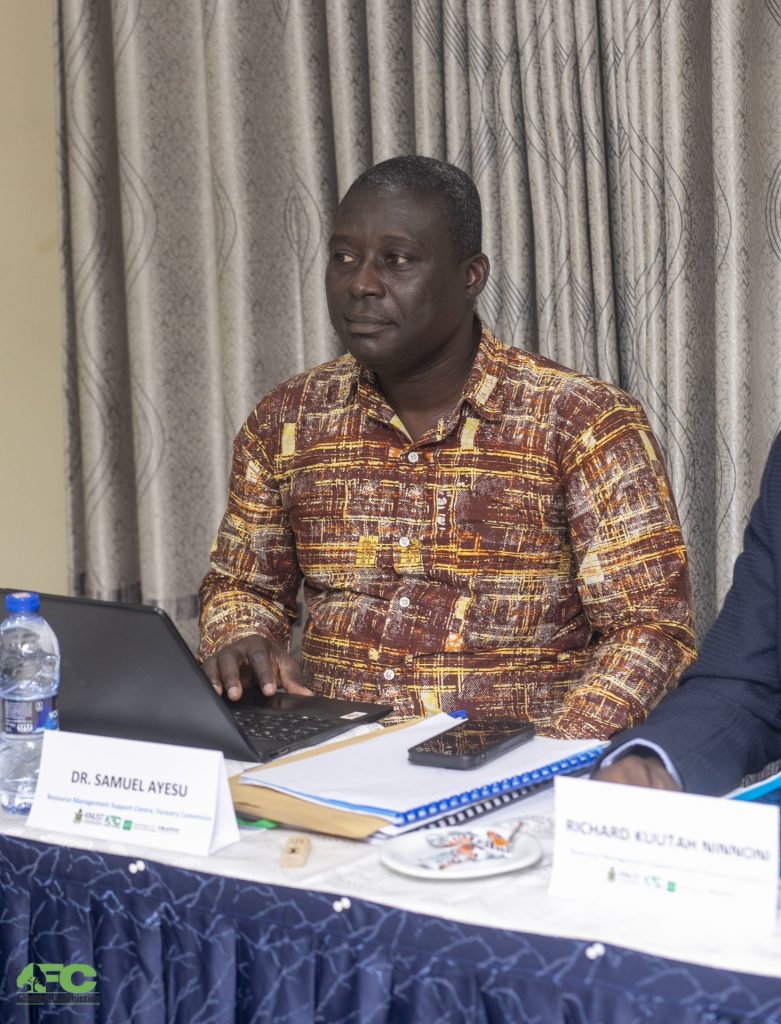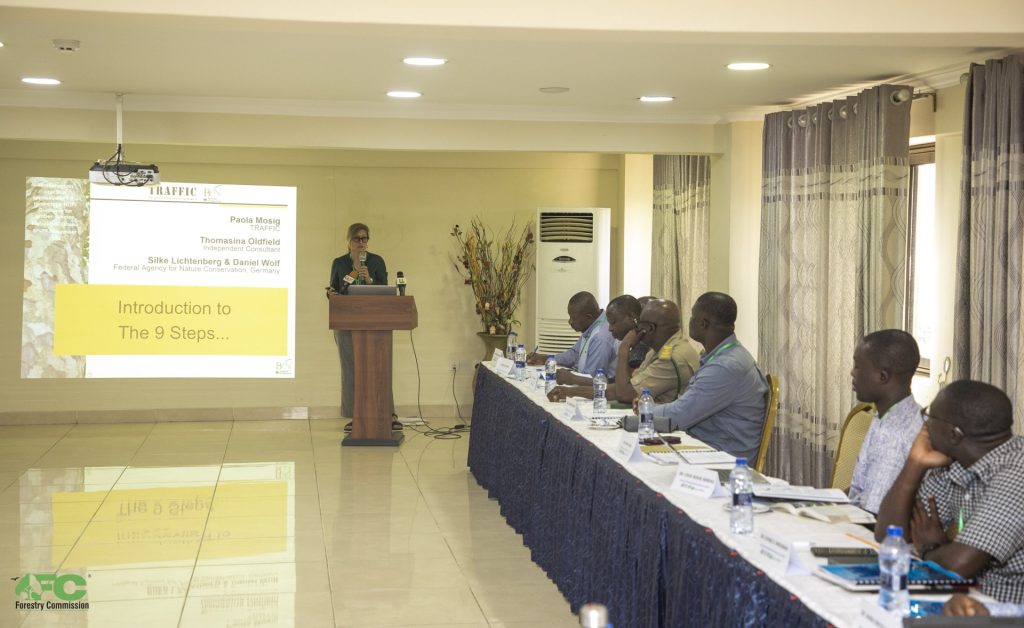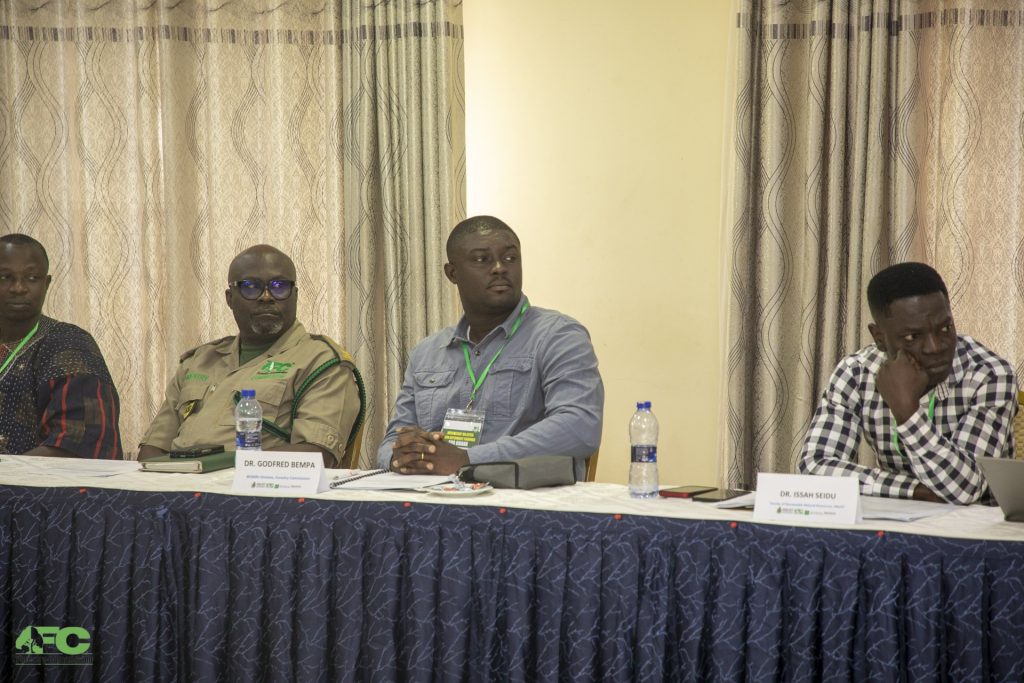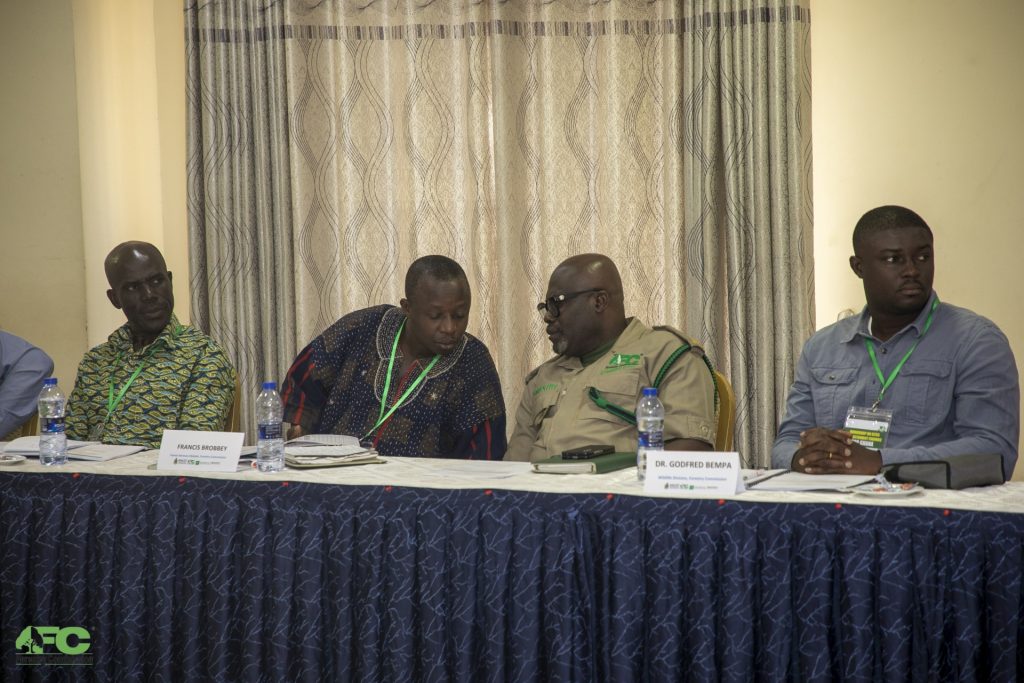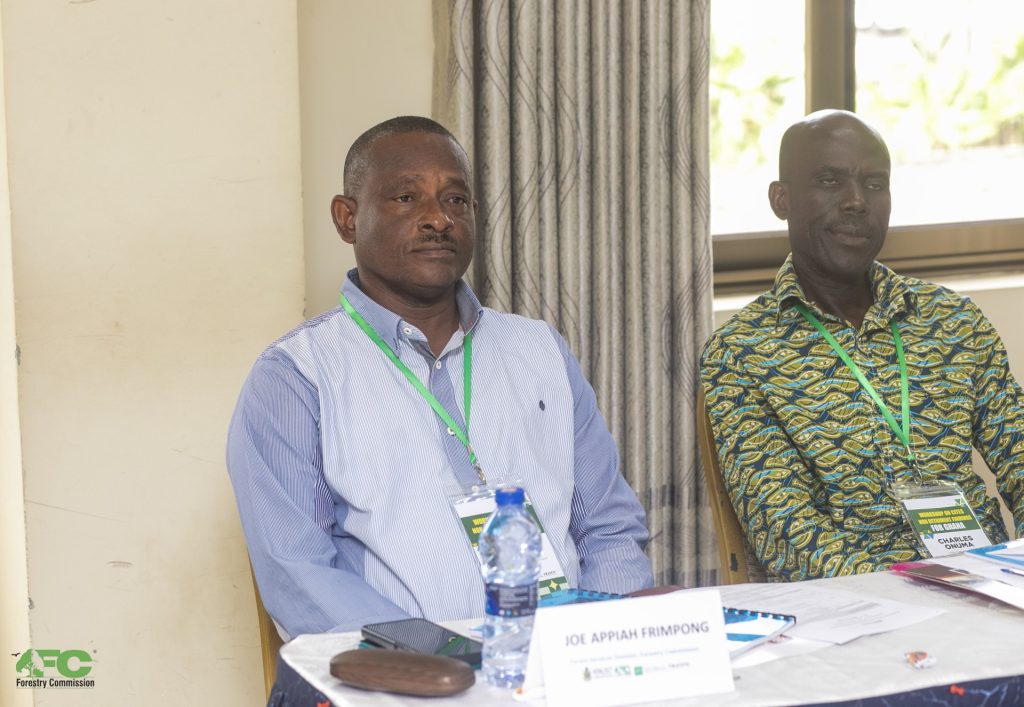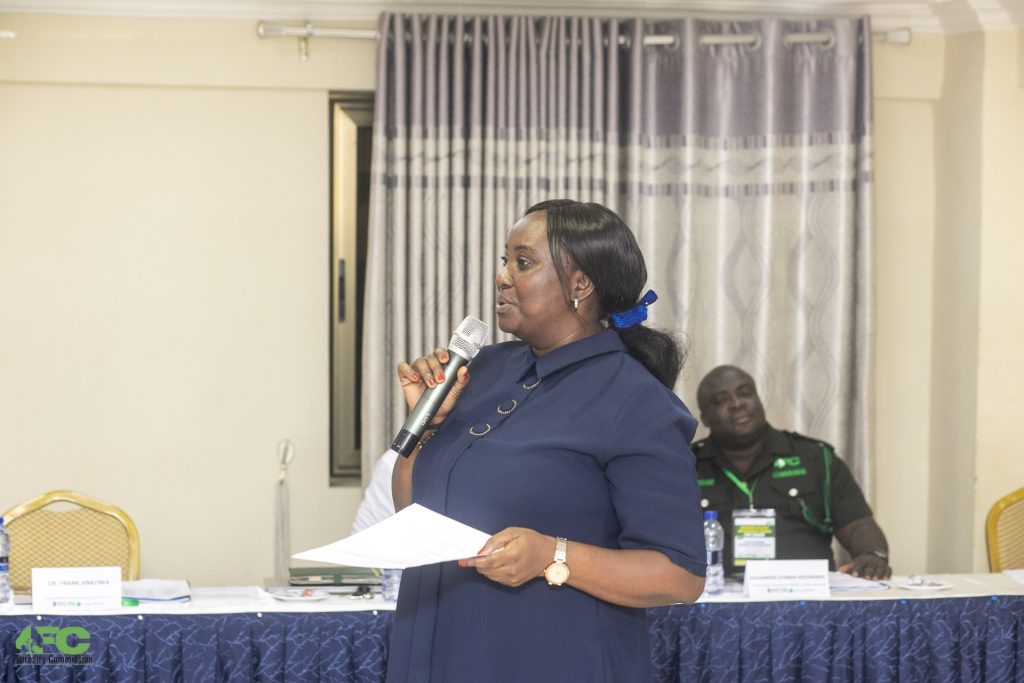A team of Functional Heads and Managers of the Forestry Commission (FC) have participated in a 3-day training workshop on CITES Non-Detriment Findings (NDF) for Ghana, to build capacity for the country to develop its own NDFs for managing timber resources.
The workshop which was organised by the Convention on International Trade in Endangered Species of Wild Fauna and Flora (CITES) Scientific Authority of Ghana, Faculty of Renewal Natural Resources of the Kwame Nkrumah University of Science and Technology (KNUST); and the Wildlife Division (CITES Management Authority of Ghana) FC; and in collaboration with the German Federal Agency for Nature Conservation (BfN) and TRAFFIC, UK, had participants from the Forest Services Division, Wildlife Division and Timber Industry Development Division, among others. The workshop was funded by BfN with financial means from the Federal Environment Ministry of Germany (BMUV).
Non-Detriment Findings are a procedure to scientifically evaluate parameters such as species distribution and habitats, population status and trends, harvest practices as well as volumes and impact of trade in target species. A 9-step Guidance/science-based process was developed by the German Federal Agency for Nature Conservation for determining the NDFs and now for tree/timber species listed in CITES Appendix II. The NDFs is a necessary precondition for issuing a CITES permit.
Participants included CITES Scientific Focal Point, and Commissioner, FC Board, and a Lecturer at the KNUST, Professor Samuel Kingsley Oppong,; Executive Director of Wildlife Division, Dr Joseph Boakye, Esq; Dr Samuel Ayensu of Resource Management Support Centre, FC; Manager of Business Development, WD, Mr James Oppong; and several others.
Professor Samuel Oppong, giving the welcome remarks at the event from 5th – 7th November, 2024, said the workshop was to help participants understand the principles behind the NDFs and infuse them into the management of timber resources in Ghana.
He further explained that the CITES Convention makes sure that species sent out of Ghana do not negatively impact the country’s forest cover and the environment, hence the formulation of the NDFs, which guides that process and ensure sustainability of species,
Dr Daniel Wolf of BfN; Ms Paola Mosig of TRAFFIC, UK, and Ms Thomasina Oldfield, Independent Consultant of TRAFFIC, UK, took turns to outlined the 9-steps process for determining the NDFs, urging the Ghanaian participants to identify the gaps and uncertainties in the information for each step, to come up with a science-based NDFs suitable for Ghana.
Participants engaged in practical exercises, analysing data gaps and applying the 9-Step Guidance to the African mahogany (Khaya) three key species: K. ivorensis, K. anthotheca, and K. grandifoliola, which are native to West and Central Africa.
Professor Samuel Oppong in a press release at the end of the training workshop said “this workshop is an important milestone in Ghana’s commitment to sustainable forest management. By equipping authorities with the tools and knowledge to conduct scientifically solid NDFs, we’re ensuring that Khaya species will continue to thrive, benefiting both biodiversity and local communities.” BfN is a Federal Authority in Germany that provide professional, scientific and administrative expertise in nature conservation and landscape management; while TRAFFIC, UK, is a leading NGO working globally on trade in wild animals and plants in the context of both biodiversity conservation and sustainable development.
